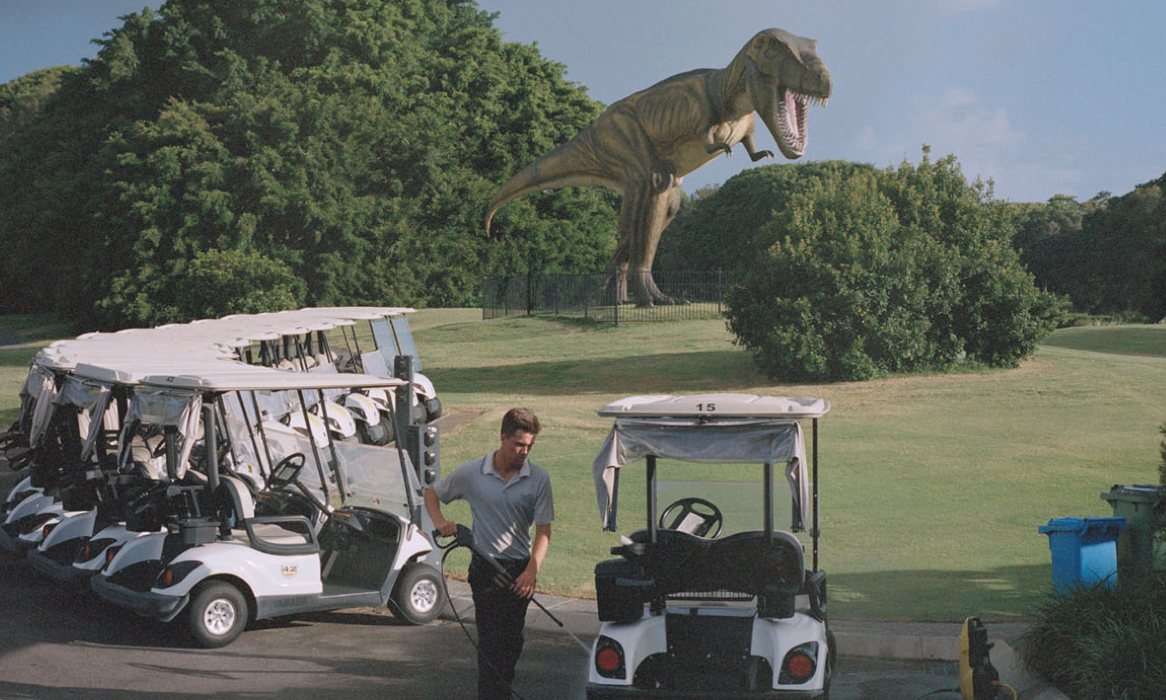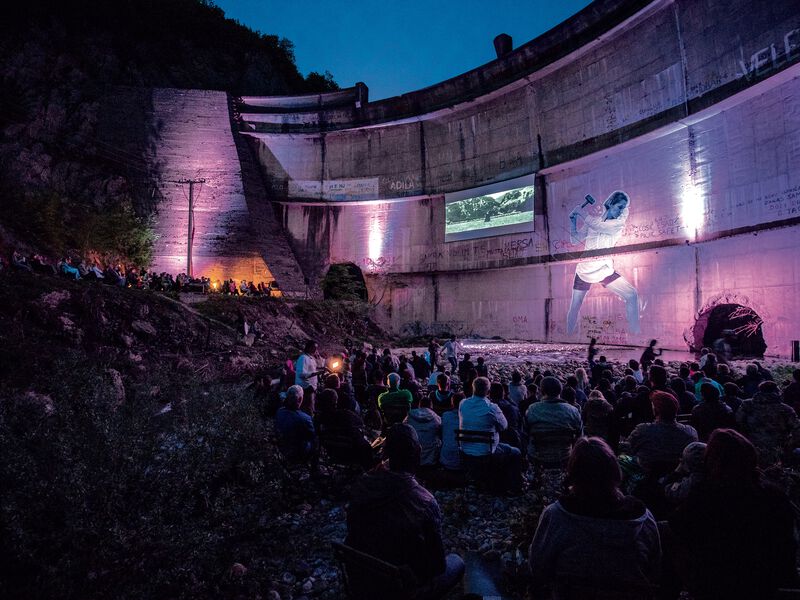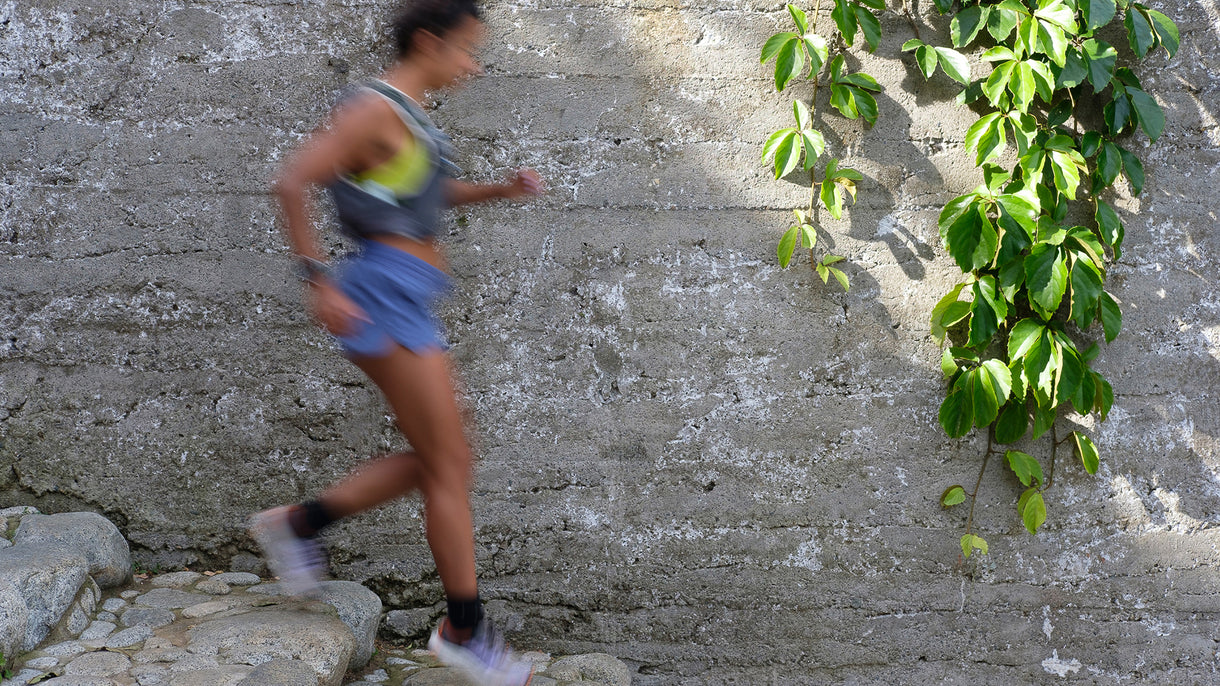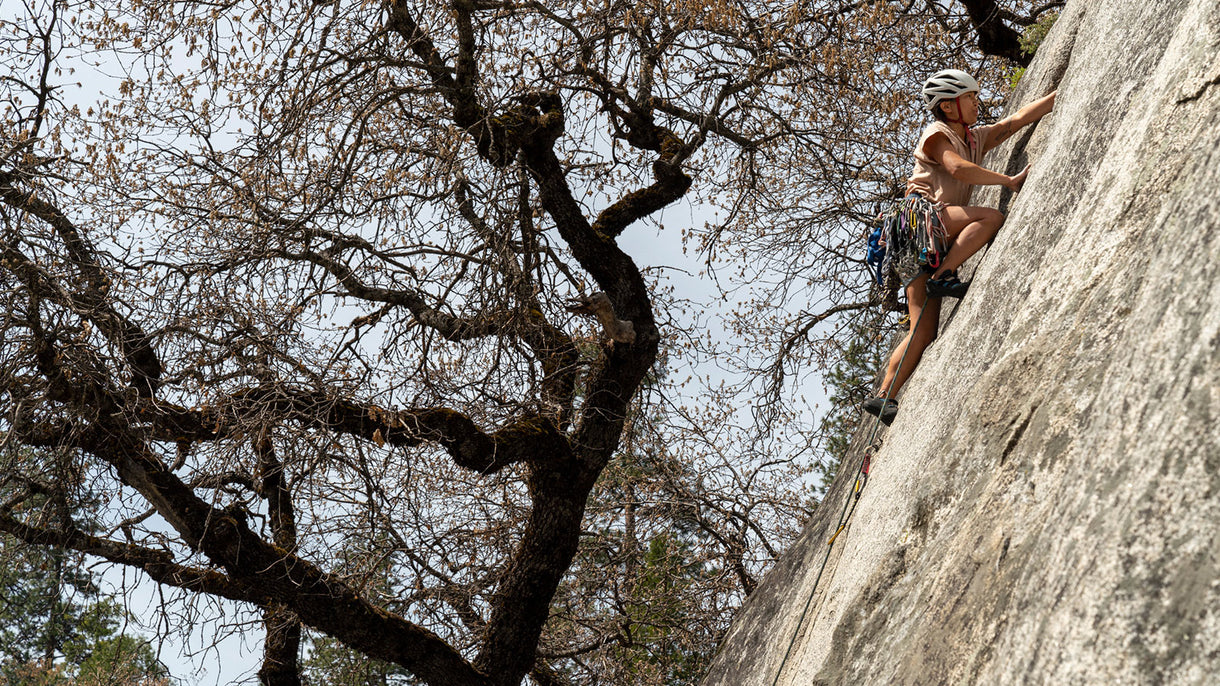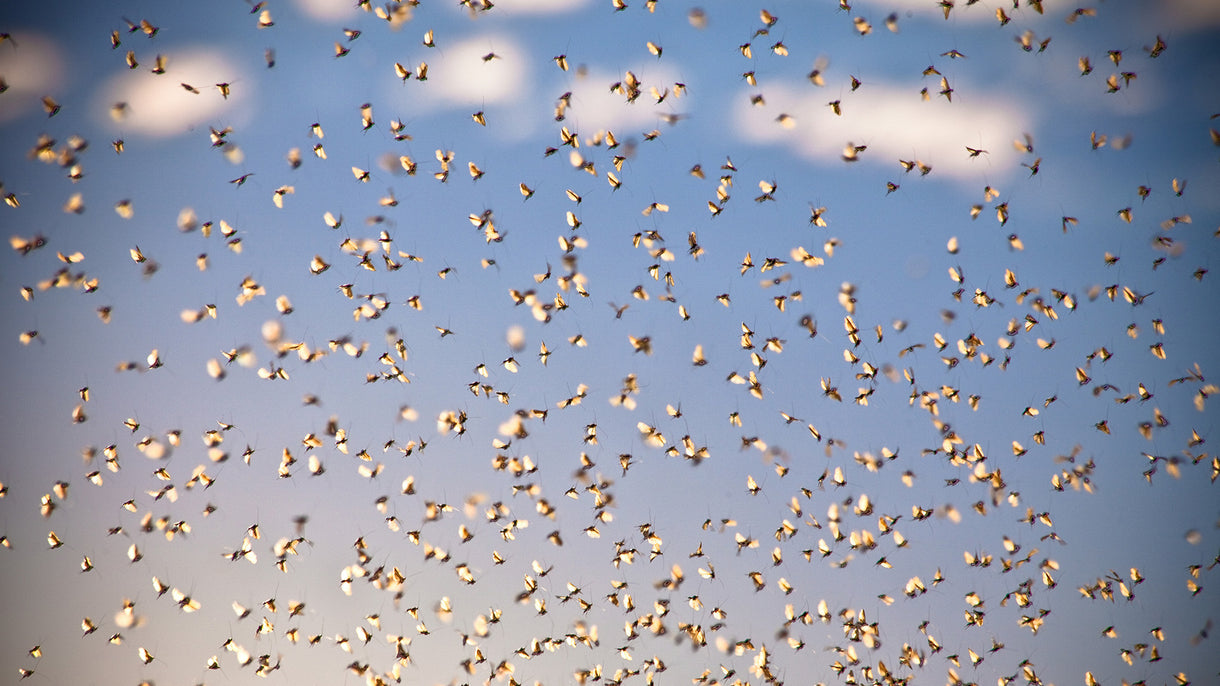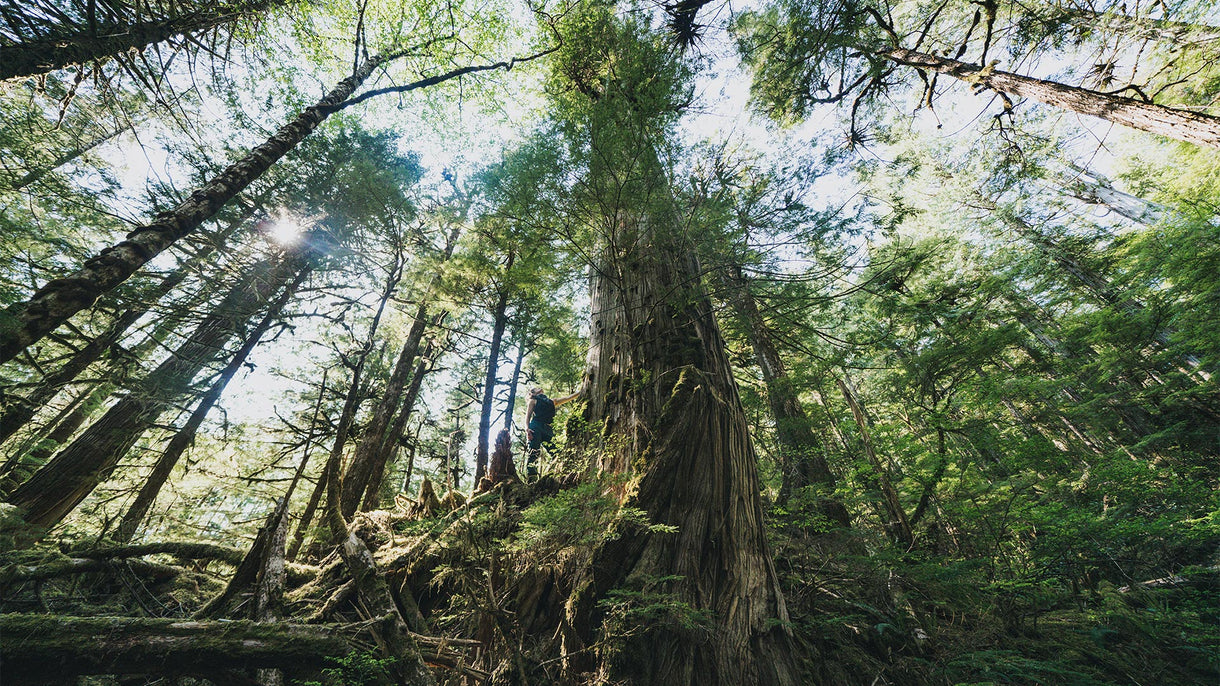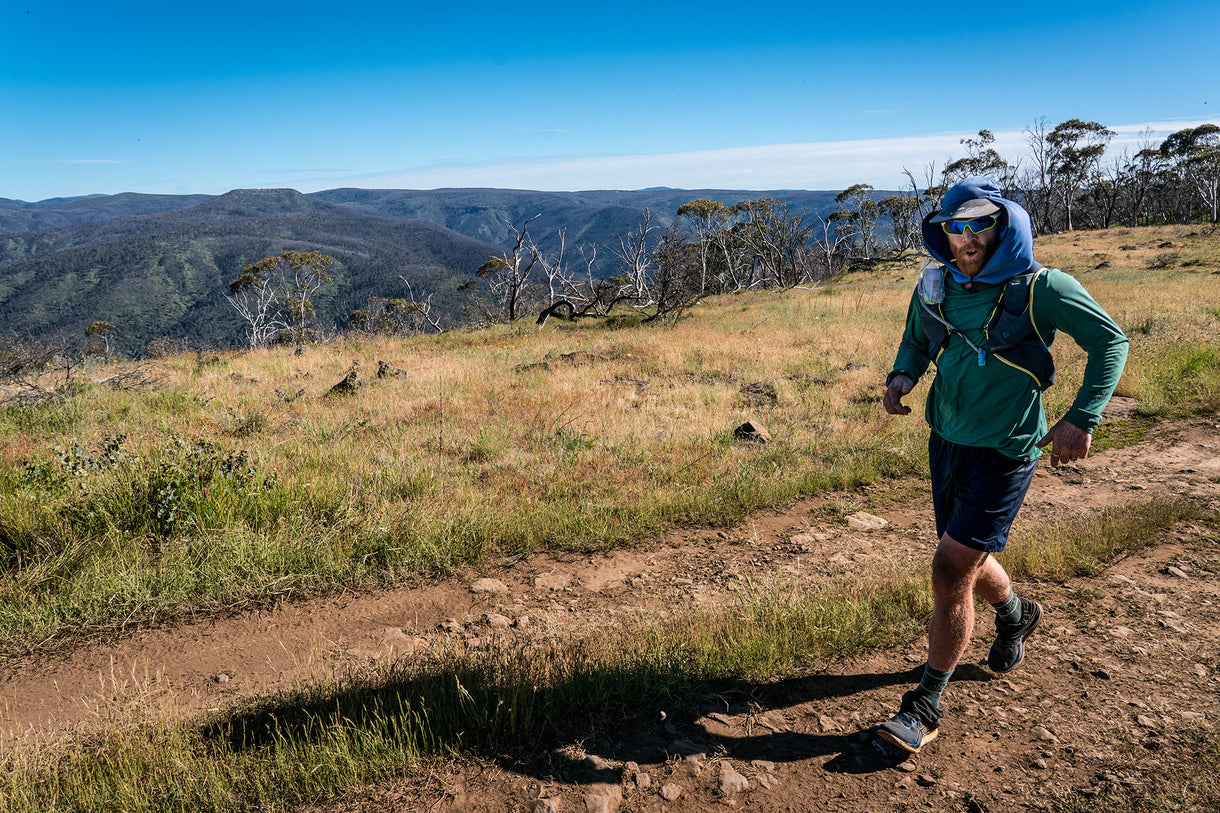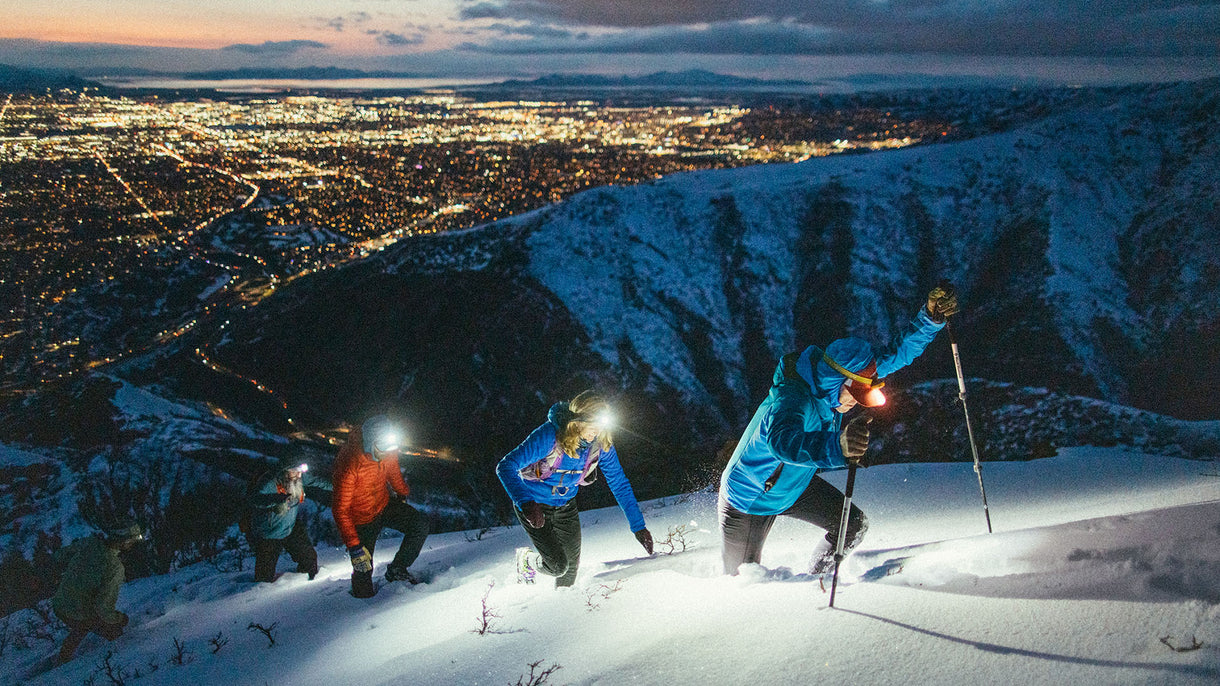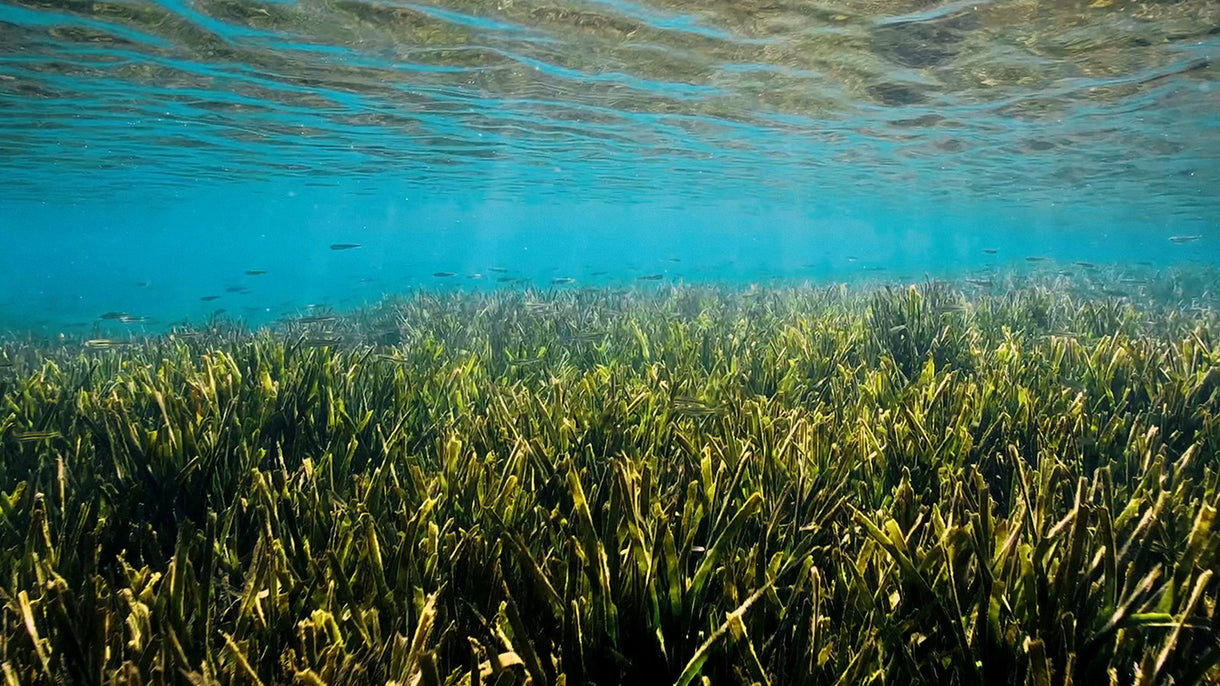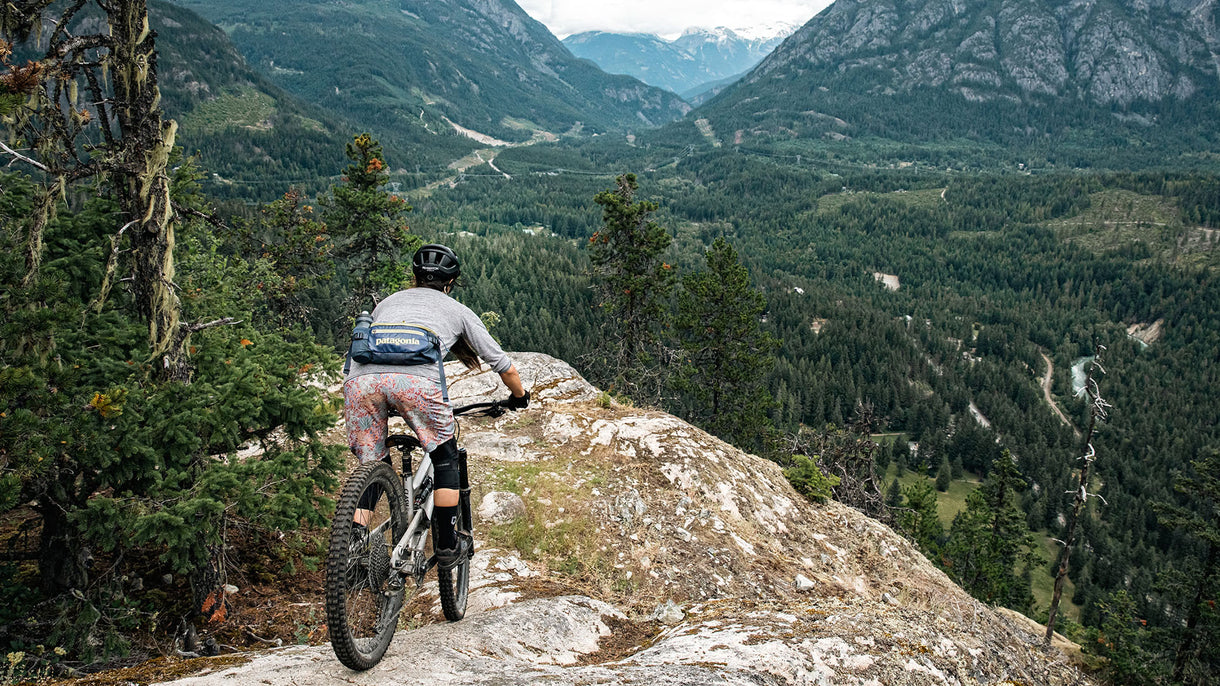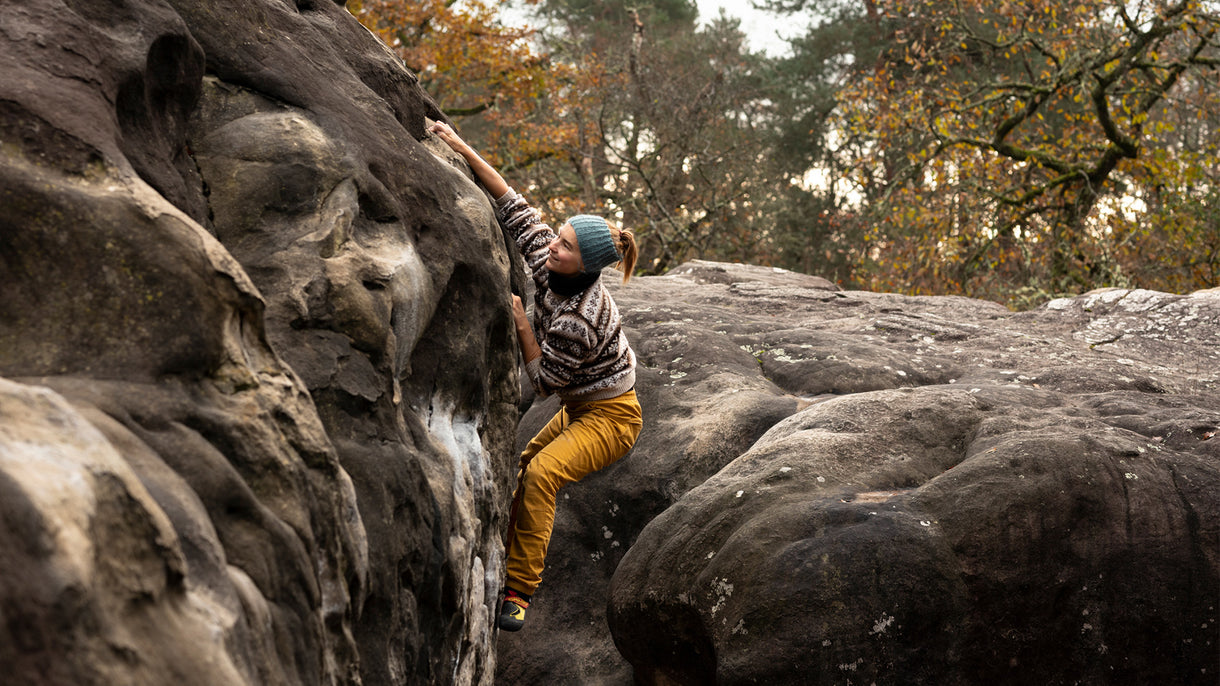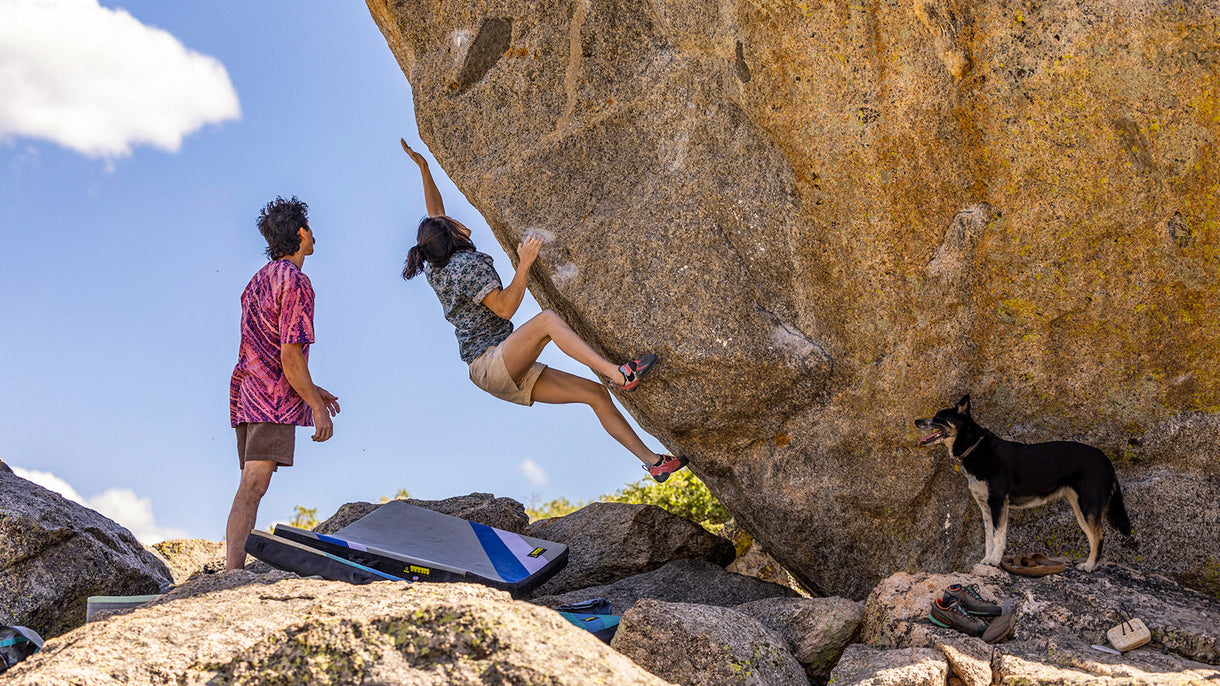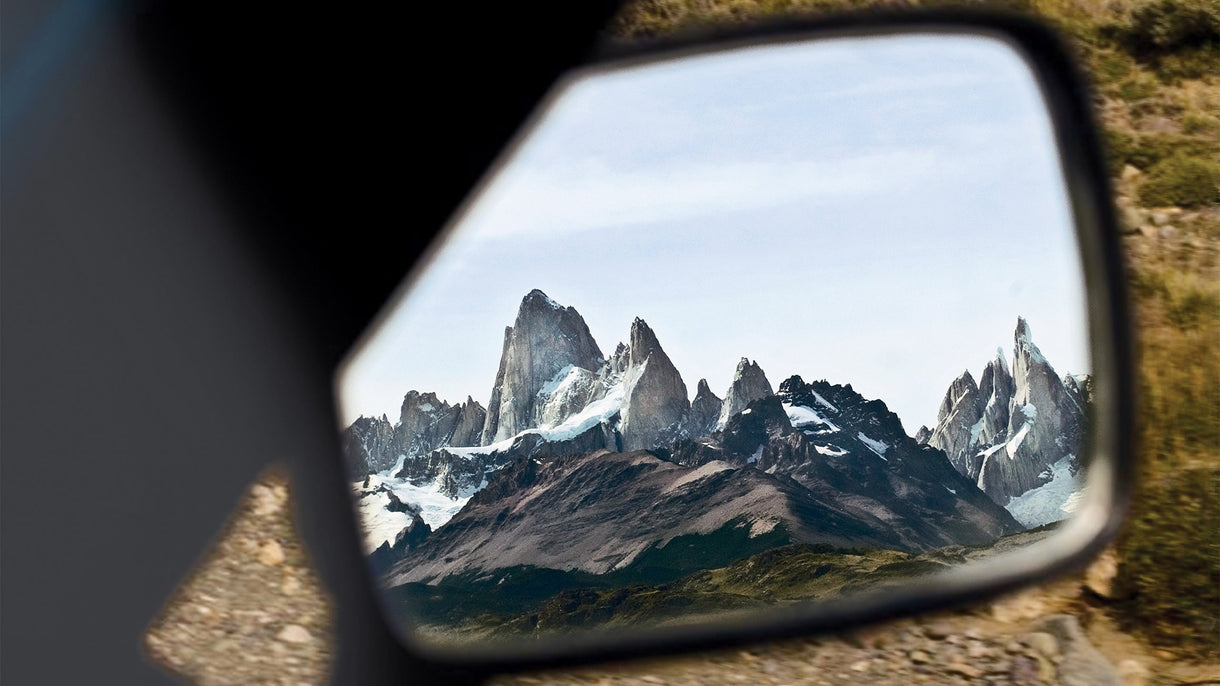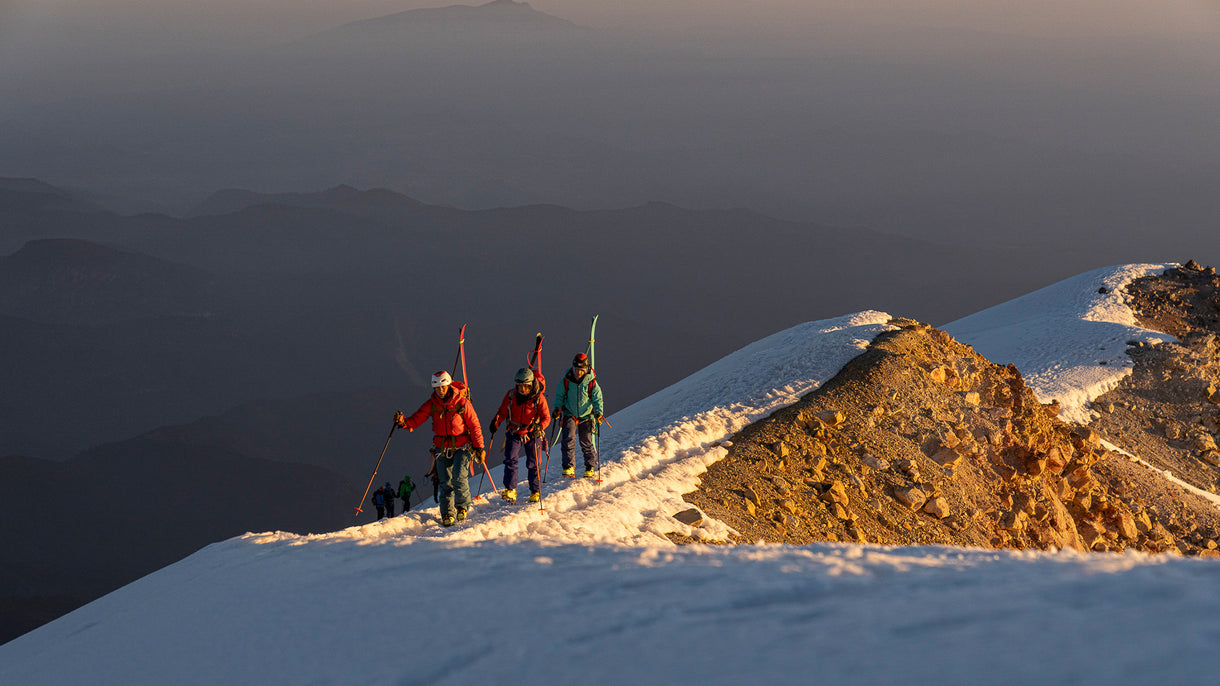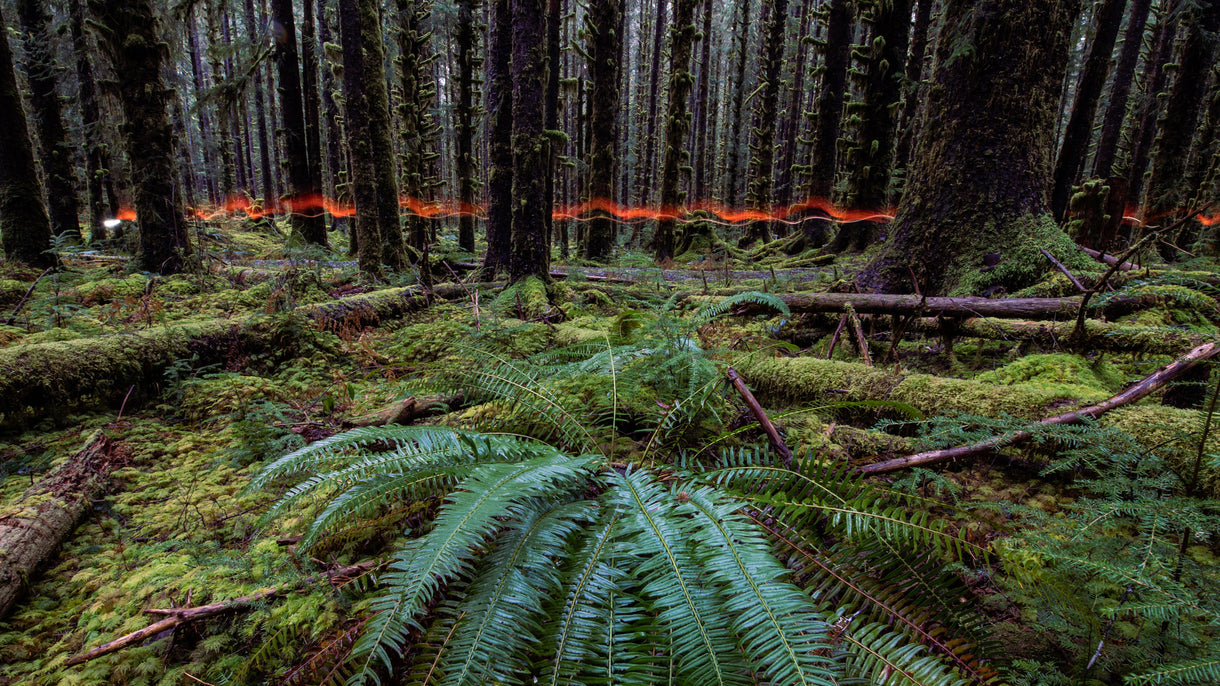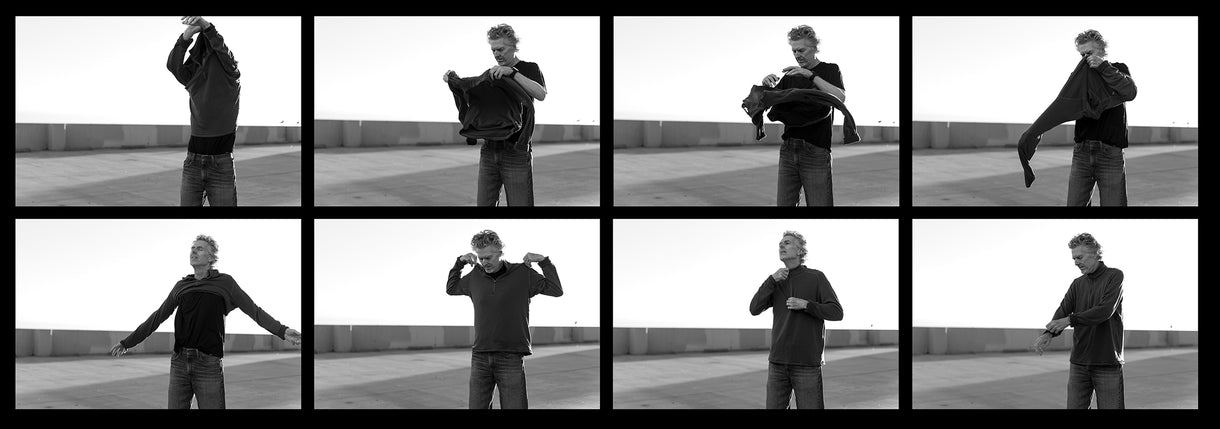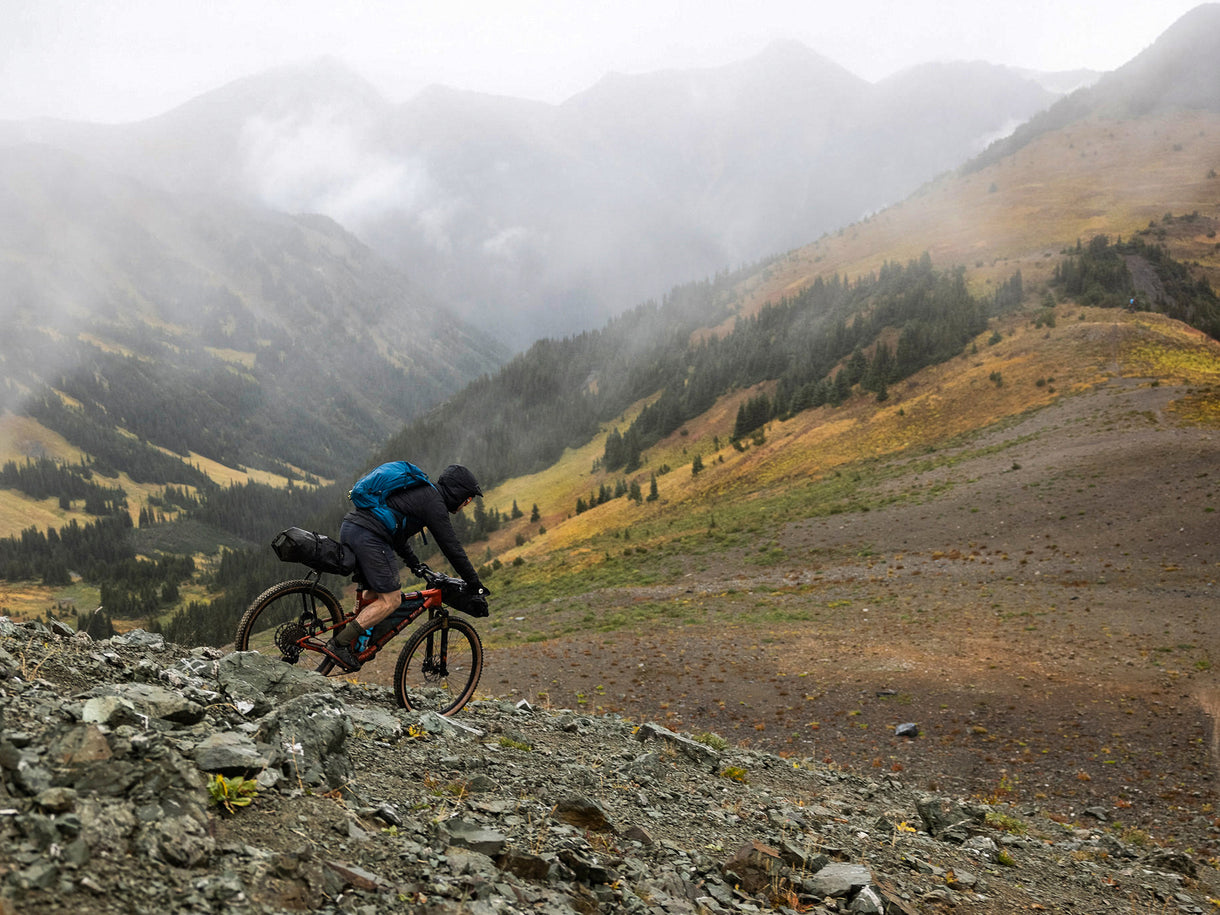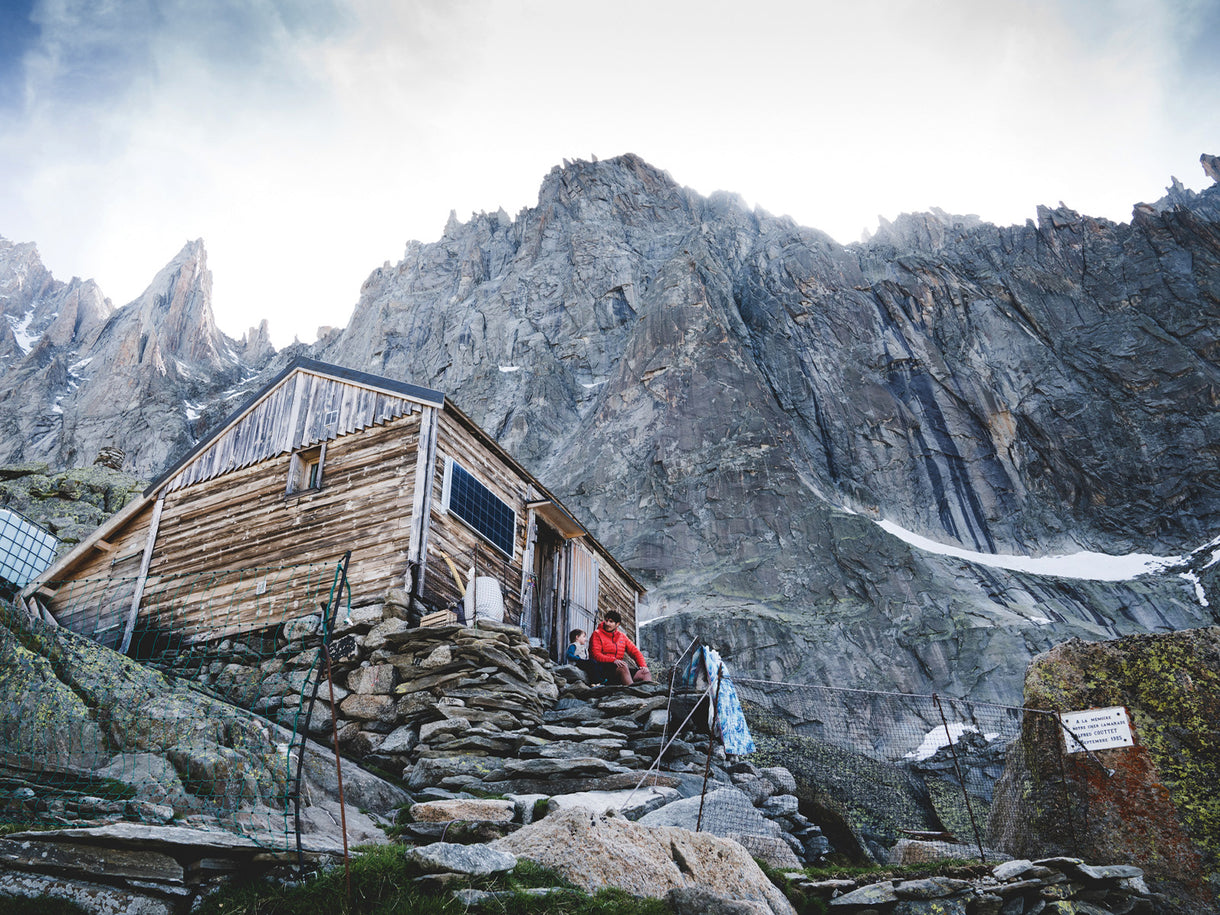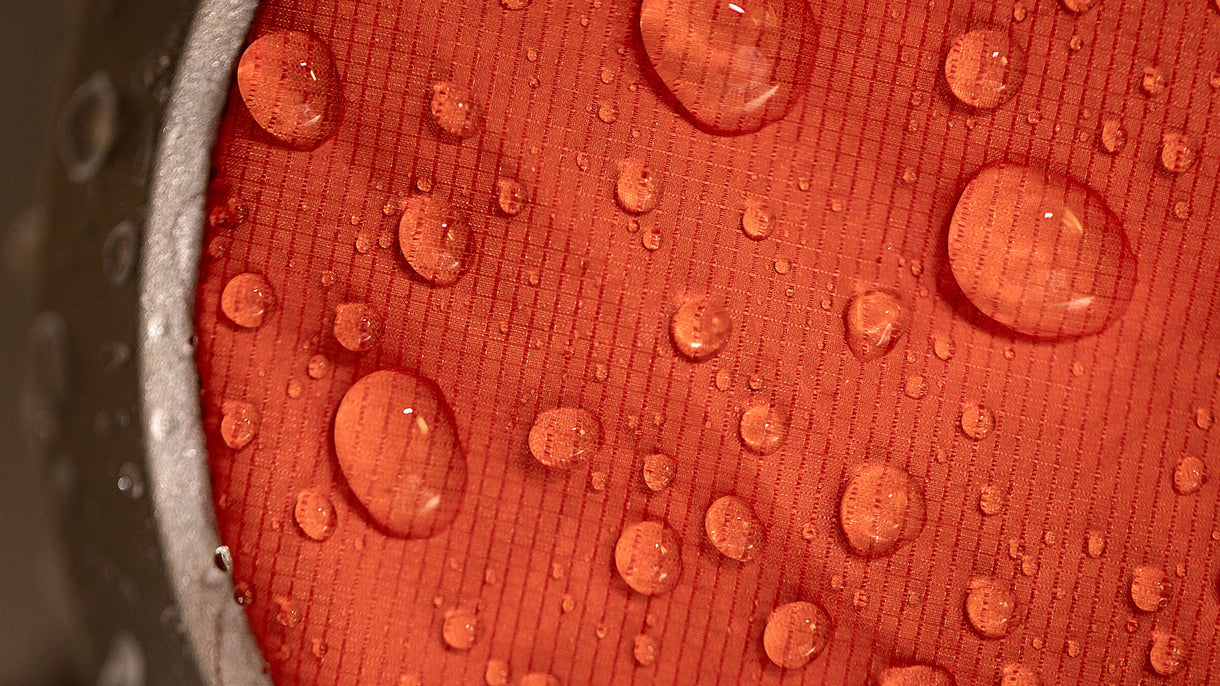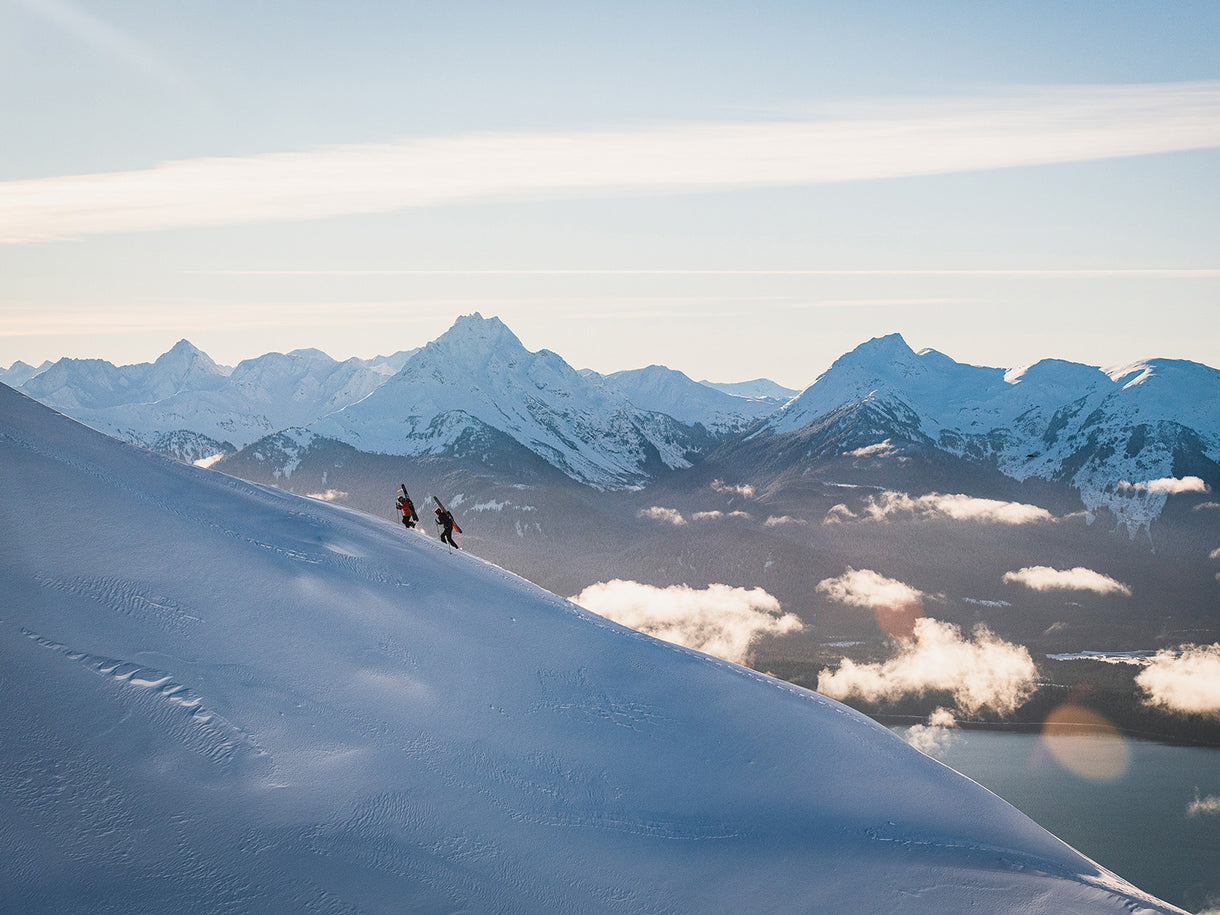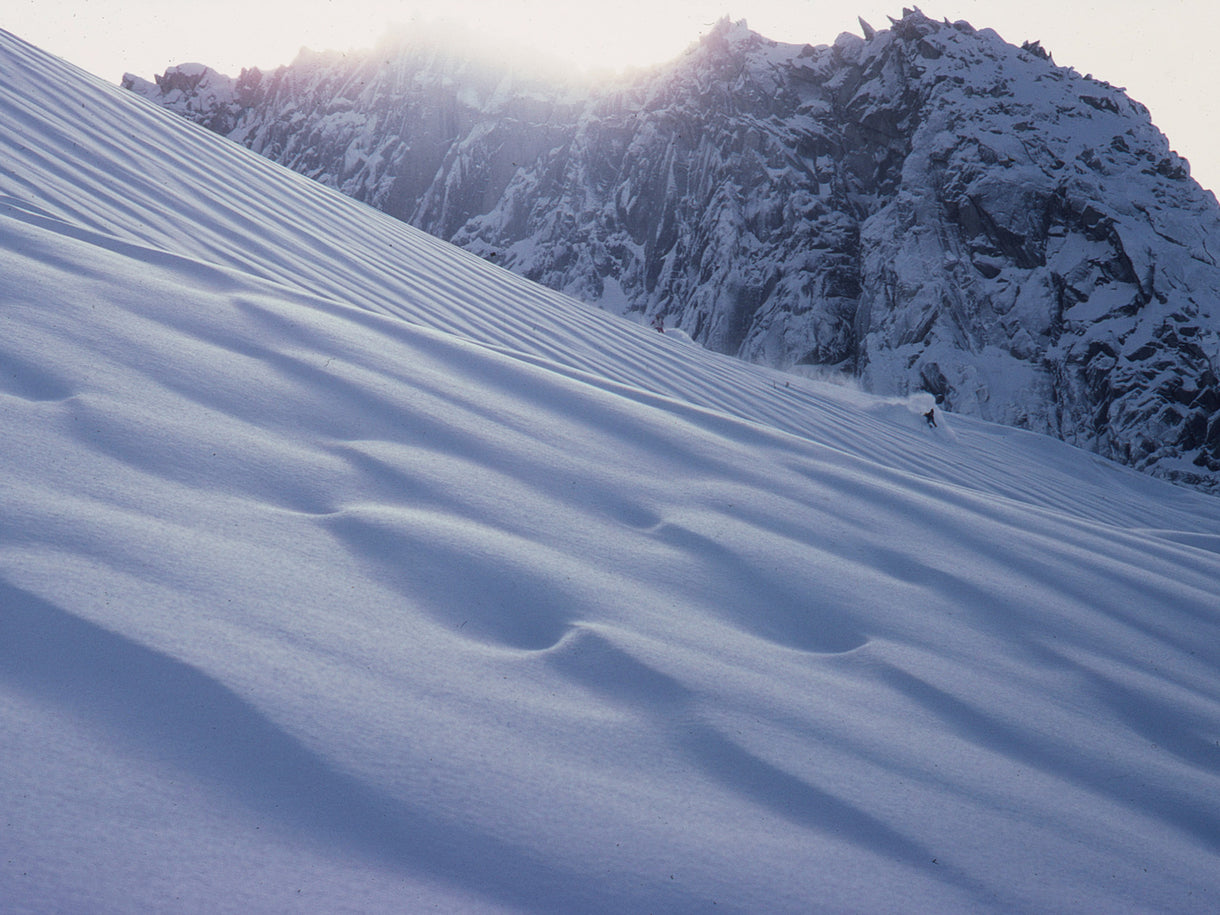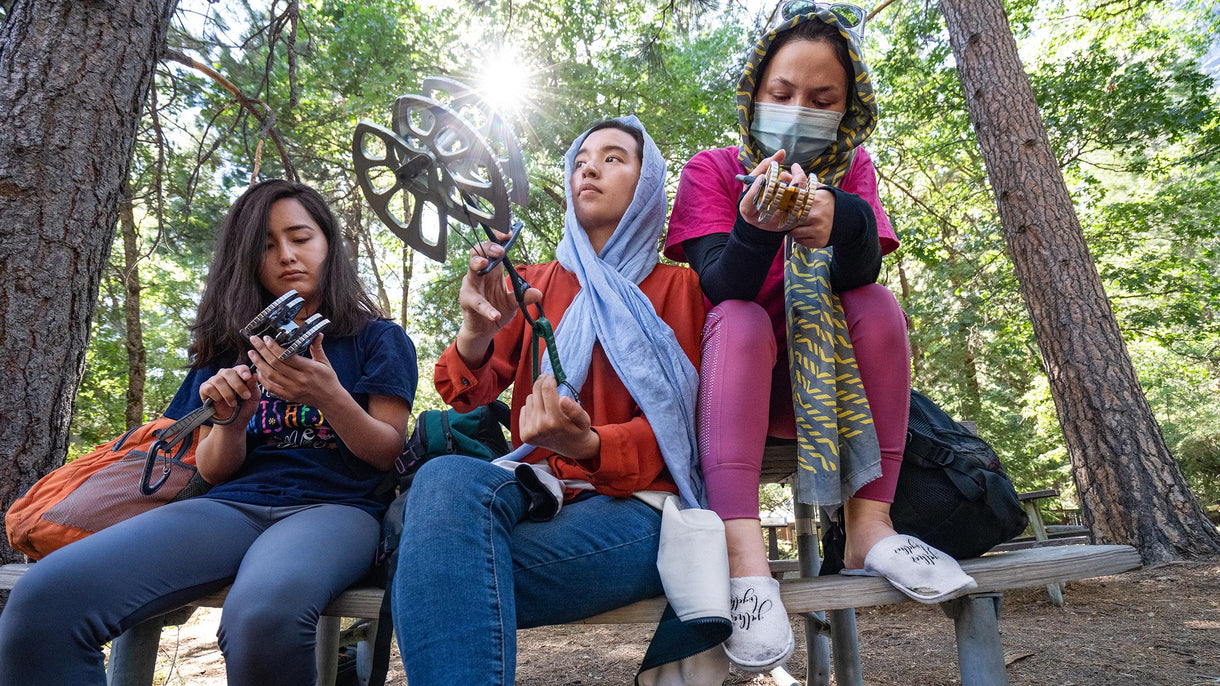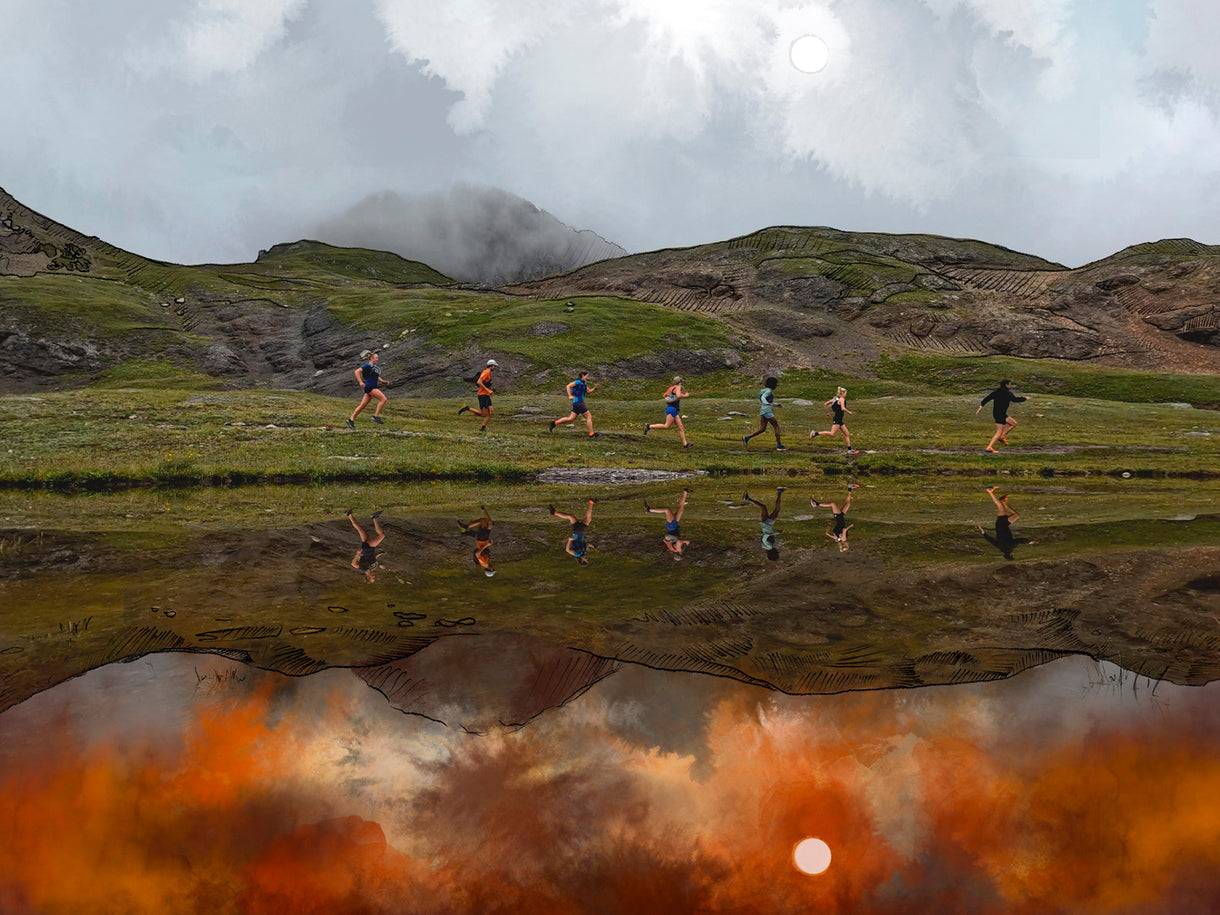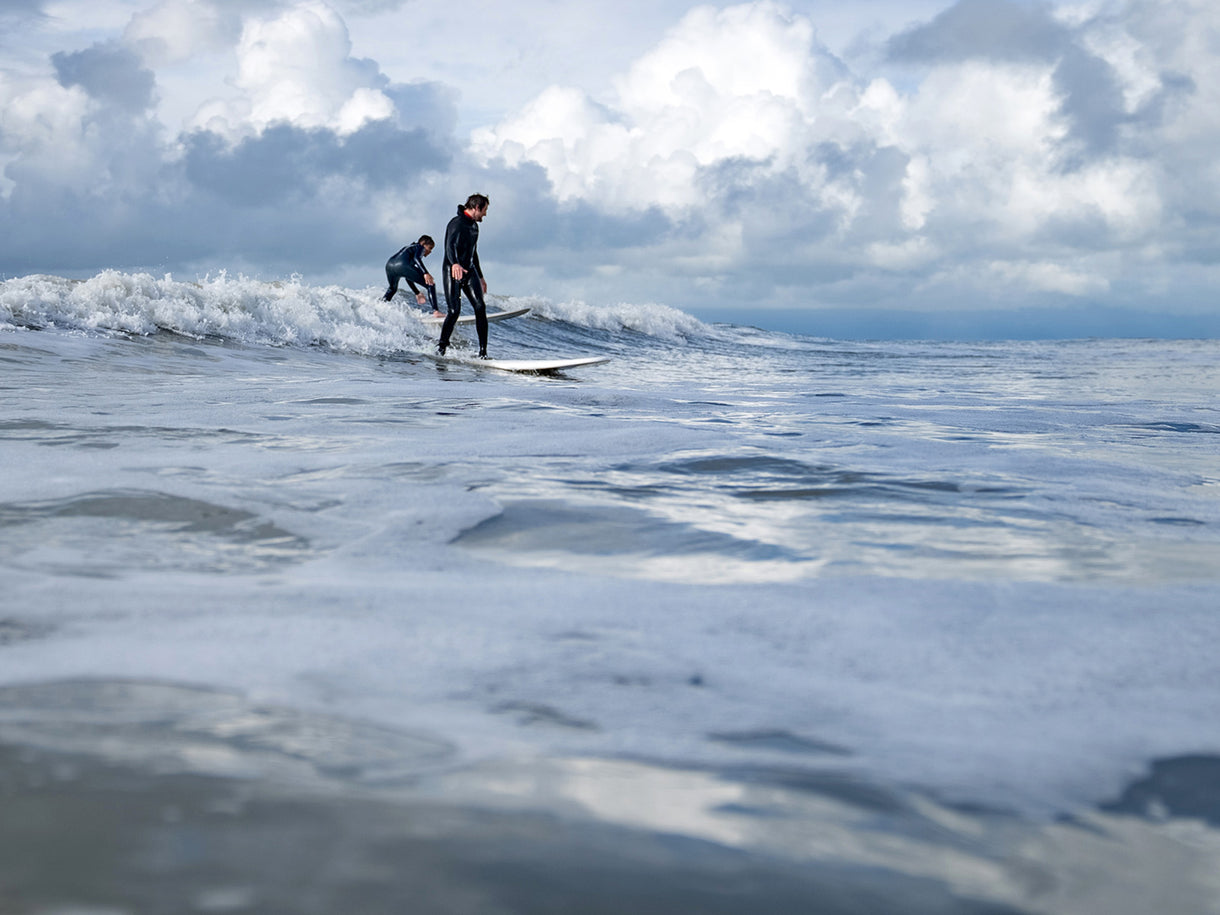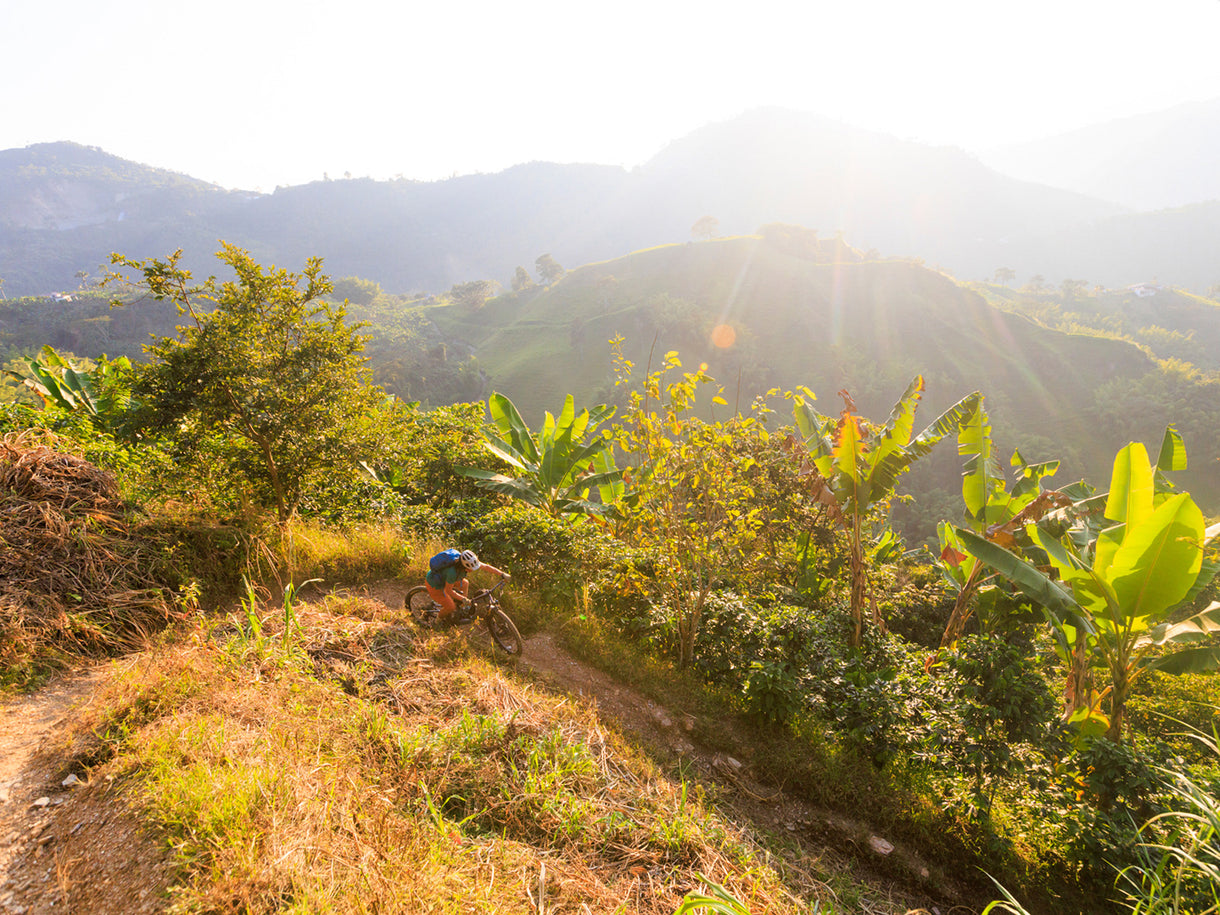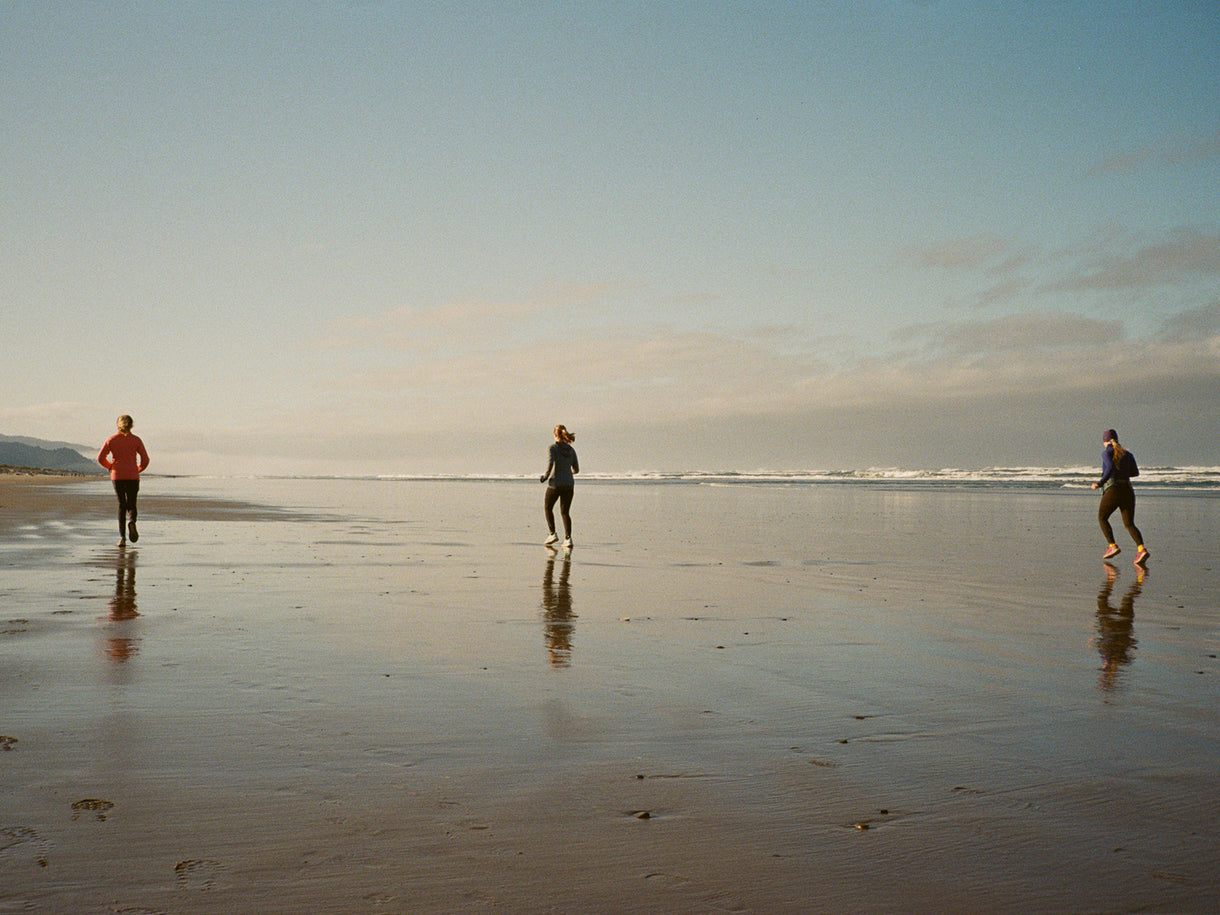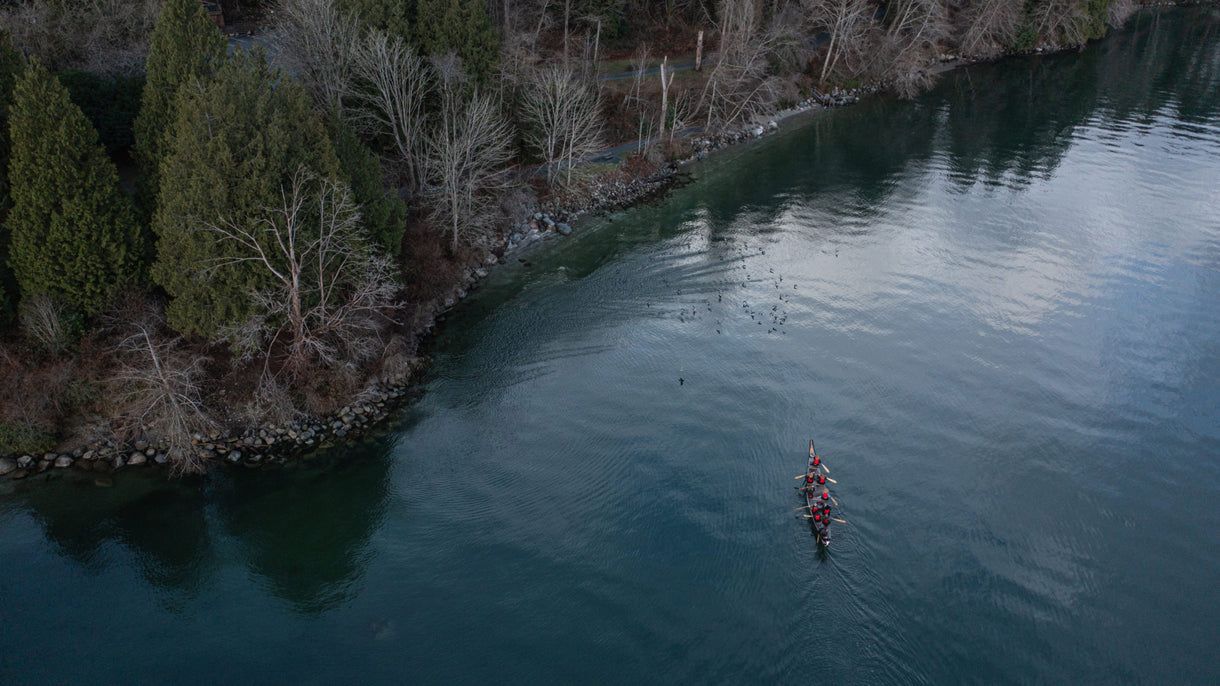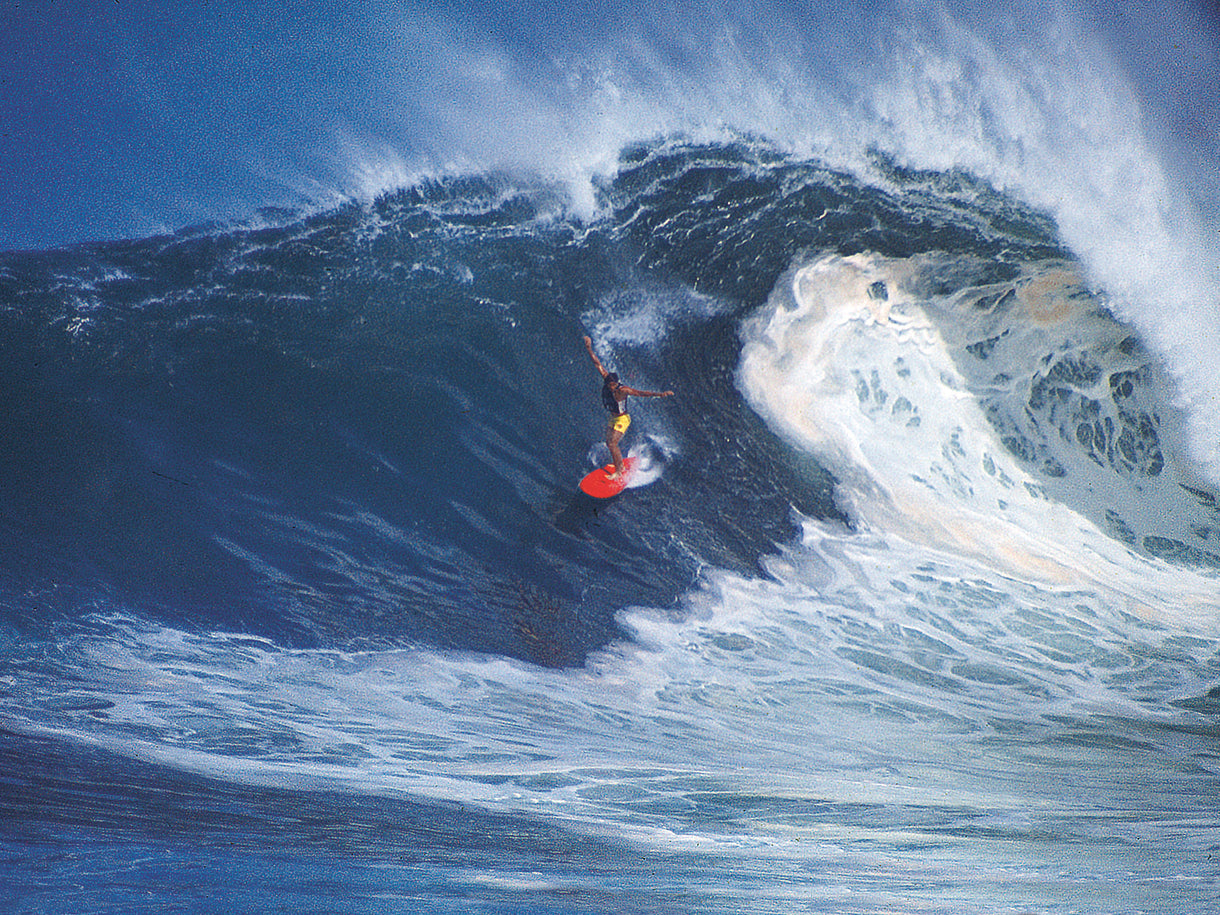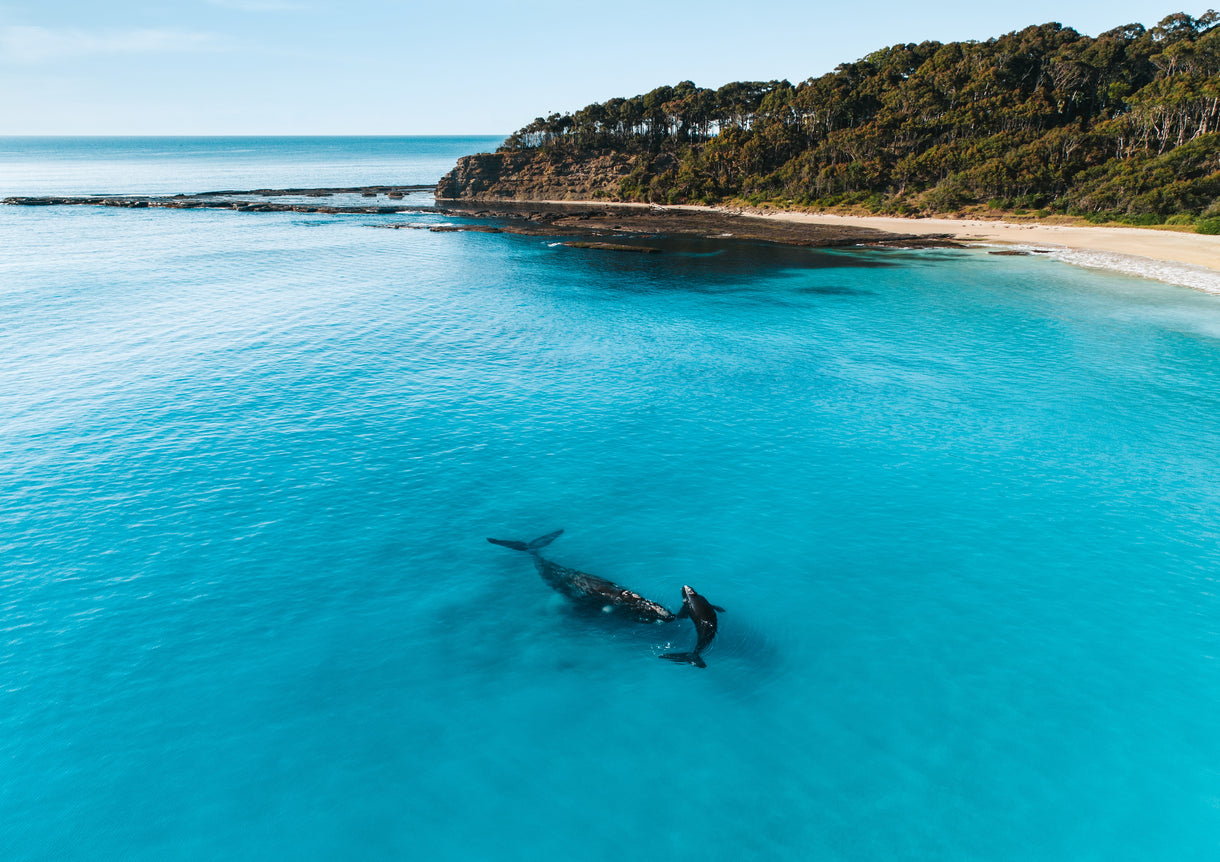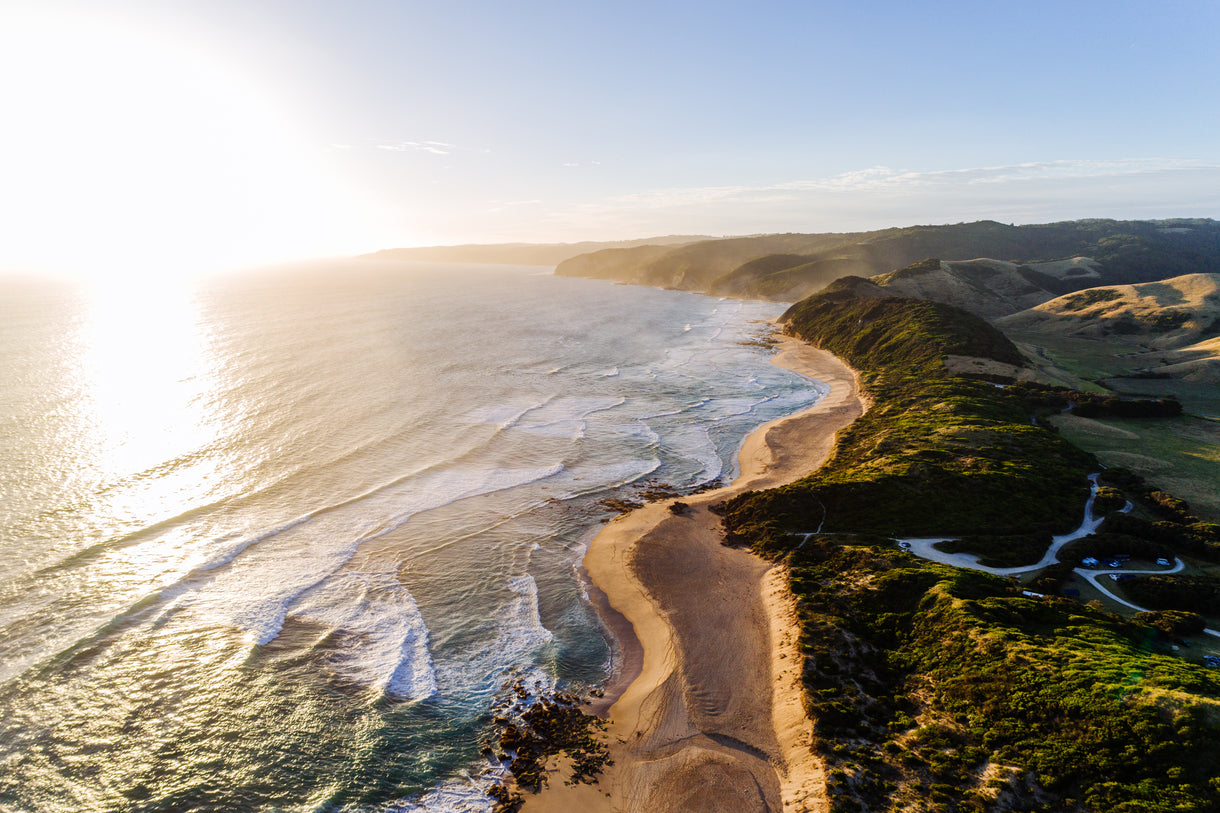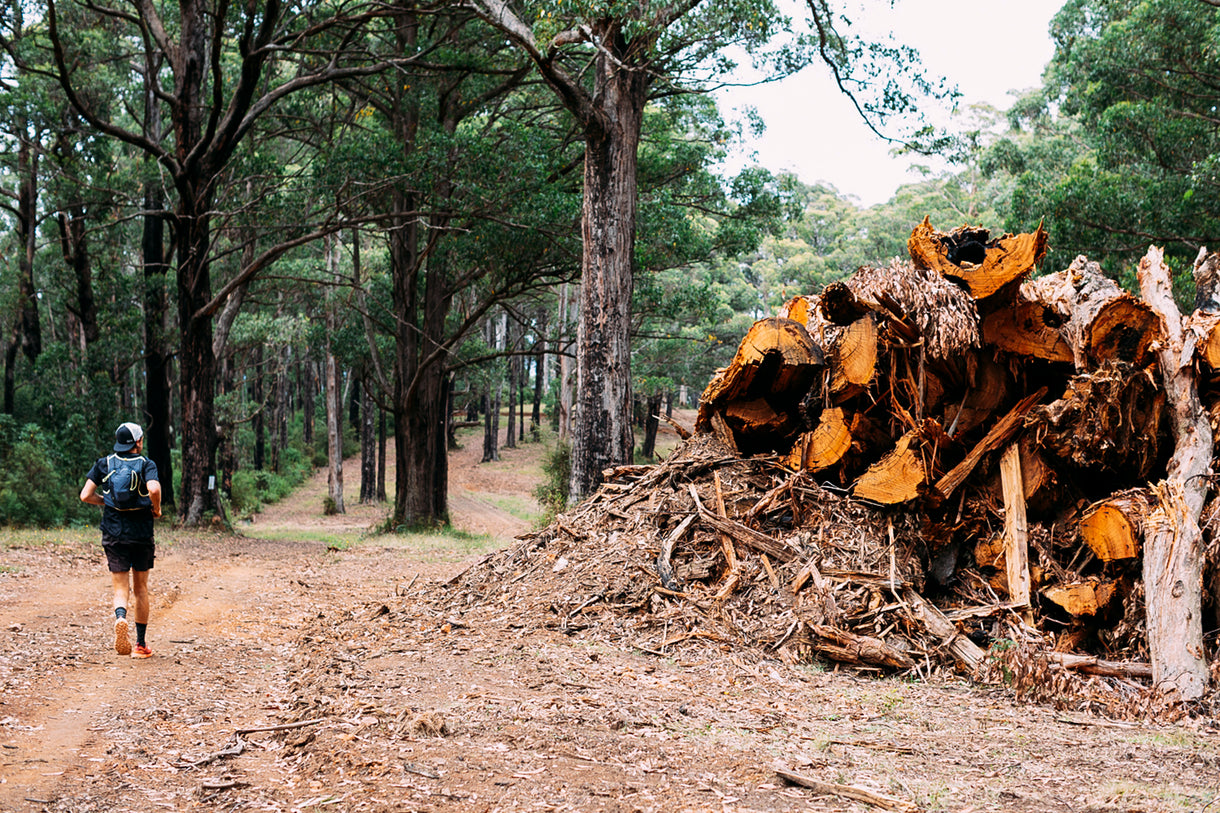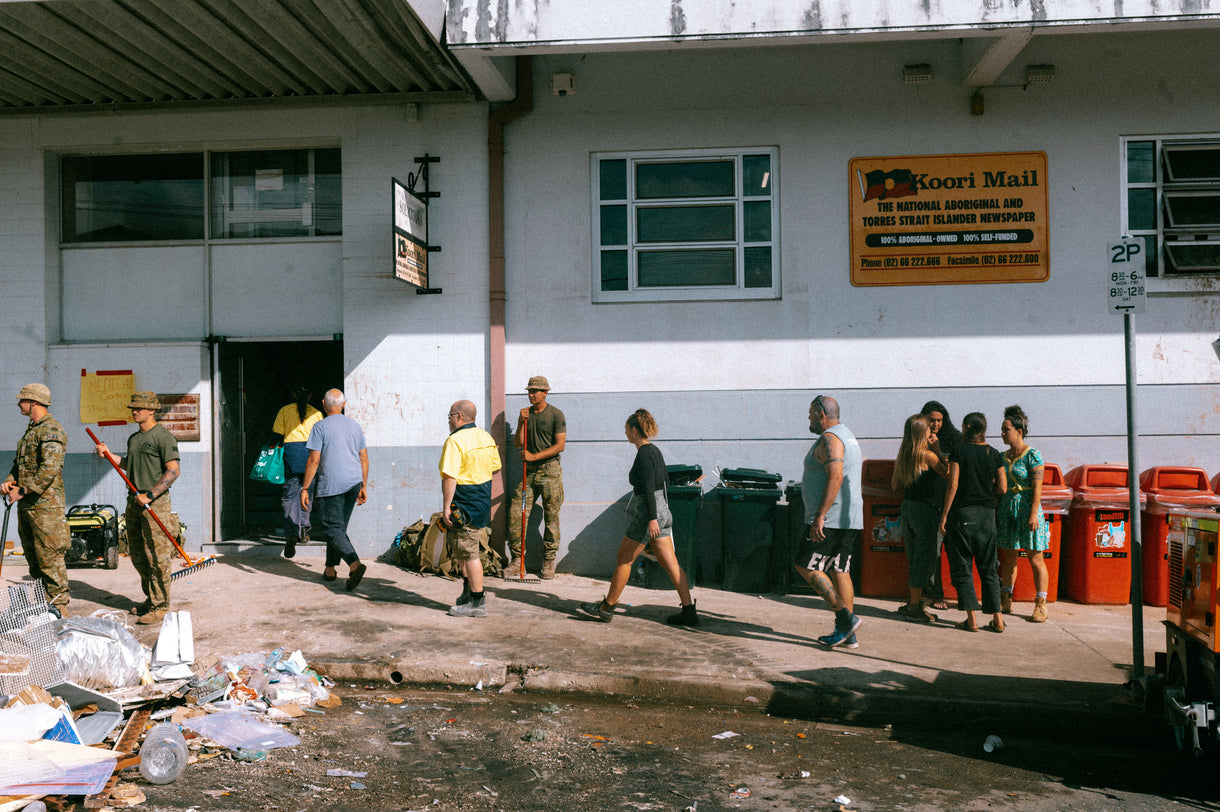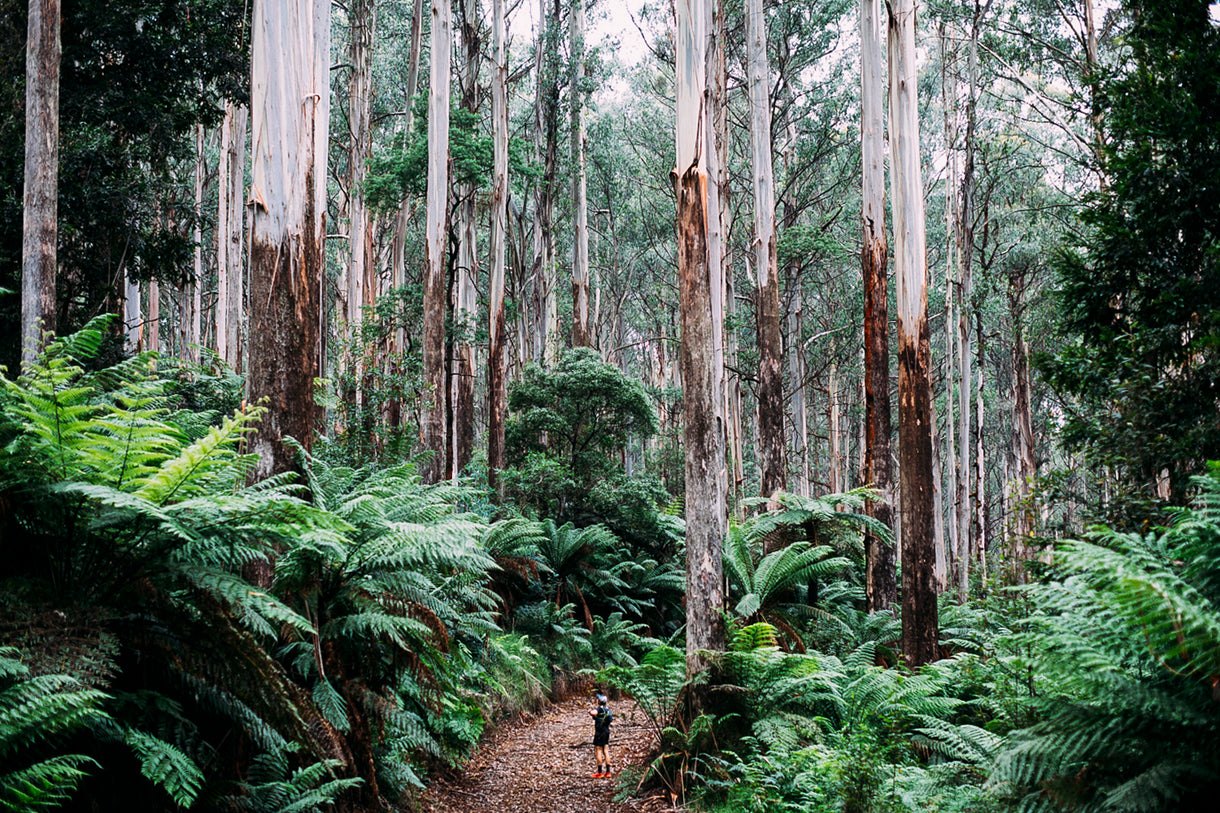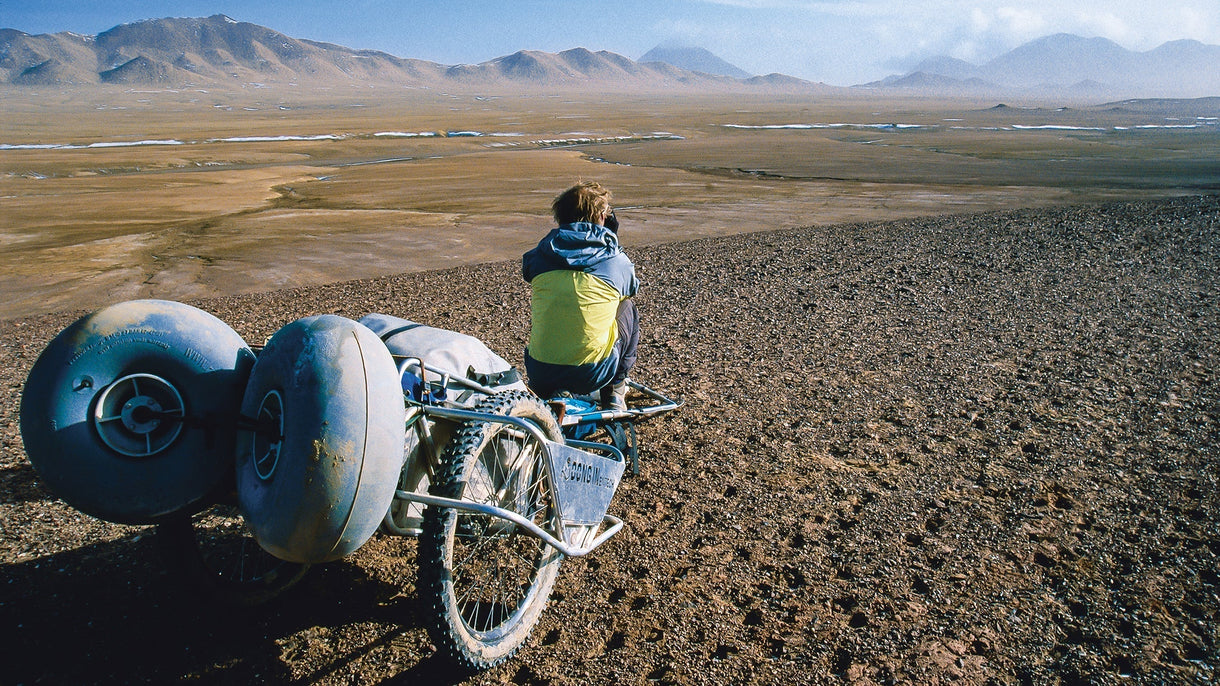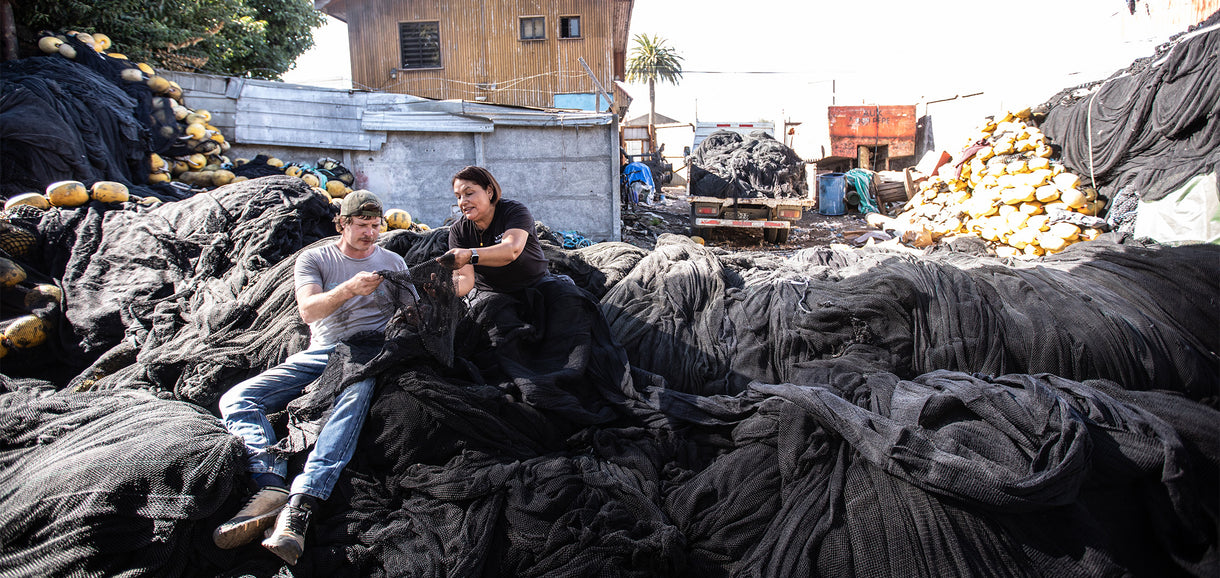All photos by Shaun Price
The snow shone brightly from Doko’oo’sliid (the San Francisco Peaks) as the burning sage blessed us from the bottoms of our feet to the tops of our heads. Cold bit through our jackets and burned our unacclimatised lungs, but as the blessings were spoken, we could feel strength building in our hearts. 227 miles of snow-covered highway, dusty dirt roads and sun-scorched singletrack lay before us. This run was a prayer for all of creation and a way to honour our ancestors, who once knew what it meant to live in communion with the Earth. Diné, Hopi, Schitsu’umsh, Inupiat, Chamorro, Apache, Tohono O’odham, Yaqui, Mestizo and white; teachers, students, allies and relatives; we stood together as one family ready to push our bodies to the limit to defend what is sacred from the oldest evil on this planet … greed.
 Before their journey began, the runners were blessed with burning sage.
Before their journey began, the runners were blessed with burning sage.
Starting from the Four Sacred Mountains of the Navajo and ending on the sacred Apache lands of Oak Flat, this run was our way of carrying prayers in our eagle feathers to the threatened holy lands of our Apache brothers and sisters at Oak Flat, or Chi’chil Biłdagoteel. Groups were running from all four cardinal directions to end at Oak Flat, and we were coming from the north. In 2015, the National Defense Authorization Act stripped this sacred land of its protections and began a process to transfer its title from the Tonto National Forest to the ownership of notorious global mining companies Rio Tinto and BHP Billiton. Through their subsidiary company Resolution Copper, they plan to extract billions of dollars of copper ore from 7,000 feet below the surface, using a mining method called block-caving.
For the past seven years, scientists and tribal leaders have conducted extensive reviews of the cultural and environmental impacts of the proposed project and concluded it would be devastating to the region. Billions of gallons of water in the drought-stricken region would be consumed and contaminated. Endangered species would be pushed further toward the brink of extinction. And most devastatingly, a holy and ceremonial site that contains evidence of thousands of years of continuous use for life and prayer would be destroyed.
Colonisation may have ended, but its practices still remain—and Native people are still here on this Earth speaking out.
The Issue
“Oak Flat is not just a ‘sacred site.’ It is one of the last places my tribe, the San Carlos Apache, call home. Apache Stronghold has worked long and hard to preserve the holy place, the place which we use to pray to our ancestors and creator. Oak Flat is one of the few places that show remnants of our lineage dating back hundreds of years ago. On a personal level, Oak Flat is an area I went to as a small child, where I helped my grandma pick acorns to make our traditional dish, acorn stew. Oak Flat is a place that provided for the Apache tribe.” —Berdina Riggs, Apache
“It’s a sacred place for prayer and ceremonies to the Apache. When one groups’ rights are threatened, then the powerful companies will have no problem doing the same thing to another. This has been a problem for as long as imperial nations and the United States have existed.” —Holden Wilson, Diné
Why Take Part
“I want to protect Mother Nature at all costs because without our mother there is nothing.” —Emily Manuelito, Diné
“Our American ideals value a right to practice religion, but more specifically, [religion] free from the threat of government. What I’m seeing here is a violation of Native American religious rights.” —Andrew Reed, Inupiat
“Oak Flat is where sunrise dances are performed. I want other girls in future generations to feel and experience having a sunrise dance. It will change your perspective on life and your spiritual life. It will change you.” —Kiana Beazley, Apache
 A water blessing—and a dip. The Brophy College Preparatory Native American Club takes a swim in the East Verde River near Payson, Arizona, after a day of running.
A water blessing—and a dip. The Brophy College Preparatory Native American Club takes a swim in the East Verde River near Payson, Arizona, after a day of running.
First Miles
We began our run at sunrise with a prayer at the base of Doko’oo’sliid (San Francisco Peaks) in Flagstaff, Arizona. Mitzy Begay, the grandmother of runner Caleb Callan, led us in prayer and blessed our feet with burning sage. Then we began to jog down snow-covered roads, covering mile after mile as the sun warmed the earth. That first day we covered 90 miles through ponderosa-pine forests and ended by descending the Mogollon Rim to the banks of the East Verde River. There, we prayed once more and blessed ourselves with the sacred water. Despite the snow clinging to the cliffs above, we all jumped into the river. Its frigid waters sent most of us running back to shore the second we dunked our heads.
“The snow was so calming and beautiful. It kept me cool. The San Francisco Peaks are part of the sacred Dinétah [homeland] to the Navajo, and so traveling down to sacred Apache land made me think of the kind of unity tribes need to have in the modern world with all its modern problems.” —Holden Wilson
“I was preparing myself. Up until that point, it was all fun and laughs, and no one really had to put in effort yet. At the peaks, I reminded myself that there would have to be action and that the path ahead would make me uncomfortable. But it needed to be done.” —Andrew Reed
“The first mile felt as if I were stepping into a spiritual realm. Each step I took, I knew I was getting closer to reaching my goal: My goal being something bigger than just completing the run.” —Berdina Riggs
Day Two
The second day of the run brought us across the central highlands and into the Sonoran Desert as our elevation continued to decline. Two runners, Aidan Parr and teacher Cooper Davis, left early to begin a marathon-length segment across the famous and rugged Apache Trail. As they ran the trail, the rest of the group ran from Payson to Roosevelt Lake. Then with the help of the Brophy College Preparatory cross country team, we finished our day within sight of Apache Leap, the famous cliffs that mark the entrance to Oak Flat. These cliffs are also the site of the tragic suicide of an entire band of Apache who chose to leap to their death rather than face imprisonment at the hands of the United States government.
We told stories of our day around the campfire, and one by one, the runners slipped away to their tents to rest up for our final climb to Oak Flat.
“This is when we reached the desert. This was my favourite place to run because of the wide views and communities we passed through. We also ran through some more conservative parts of Arizona, and it reminded me of those who would oppose Oak Flat. Once we finished at Roosevelt Lake, we rested at a campground at Cottonwood Cove. I learned of my friends’ ideologies and ethics and the difference in beliefs. It was peaceful and reinforced my sense that I was there to help others.” —Andrew Reed
“I was the only woman running with males, and it gave me strength to know that I could lead, that I am not in the dark and that my presence matters.” —Emily Manuelito
 Day two began with a blessing at the Picket Post trailhead near Superior, Arizona.
Day two began with a blessing at the Picket Post trailhead near Superior, Arizona.
 Teacher Cooper Davis and Aidan Parr (Coeur d’Alene) run a marathon-distance segment along the Apache Trail.
Teacher Cooper Davis and Aidan Parr (Coeur d’Alene) run a marathon-distance segment along the Apache Trail.
 Early-morning starts mean spectacular views. Davis and Parr put one foot in front of the other on day two.
Early-morning starts mean spectacular views. Davis and Parr put one foot in front of the other on day two.
 Sharing stories and beliefs around the campfire.
Sharing stories and beliefs around the campfire.
Day Three
Our third day of running marked our transition through our final spiritual corridor. We began to run in groups, with the staff from Brophy Prep leading us down the desert singletrack to the town of Superior. There, we marched through the sleepy downtown and began our climb. We marched the final miles as a single unit comprised of all our runners, parents, friends and other supporters. While we marched, one of our runners, Adrian Munguia, began to sing the Tohono O’odham “Running Song.” It told the spirits ahead that we were coming to a holy place and marked the transition from the desert lowlands of his people to the mountain highlands of the Apache.
“It was moving to see everyone that was with us, and the march was a time to cool down. It was good to reconnect with civilisation.” —Andrew Reed
“The reality started to set in. Jogging through the trail up through the town, and finally to the trail under the bridge, gave me a sense of finality. Joining with the others who had run and drove in gave me a sense that this was bigger than just us.” —Christopher Ramsey
“I felt strong, and I was ready to help my group reach our destination. My sense of purpose was to run in prayer along with my group in efforts to save Oak Flat.” —Emily Manuelito
 Logging miles on a section of the Legends of Superior (LOST) Trails. From front to back: Emily Manuelito (Diné), Johnny Murphy and Adrian Munguia (Akimel O’odham).
Logging miles on a section of the Legends of Superior (LOST) Trails. From front to back: Emily Manuelito (Diné), Johnny Murphy and Adrian Munguia (Akimel O’odham).
 The group leads the march on day three.
The group leads the march on day three.
 Upon the arrival of all four staffs from all four directions, a social dance was held at Oak Flat Campground.
Upon the arrival of all four staffs from all four directions, a social dance was held at Oak Flat Campground.
Day Four
When we arrived at Oak Flat, we were welcomed by the runners from the other three cardinal directions, and immediately the ceremony began in song and dance. Different tribes offered their prayers in solidarity with the Apache, and together we prayed for all of creation—especially Oak Flat.
“While entering Oak Flat, I got a feeling of being at home. The feelings of being surrounded by loved ones. Going back to my roots and feeling the peace and being allowed to be myself.” —Kiana Beazley
“The most powerful part of the journey was arriving to Oak Flat and seeing all the reporters and people who came to support. As soon as I arrived, I smelled cedar and sage burning and instantly returned [to] memories of my grandfather. I believe these scents were my grandpa visiting me at the site, which we used to visit together. Cedar and sage are plants Natives use to burn and is another aspect of our culture.” —Berdina Riggs
“Running in the cold and snow was surprisingly serene and grounding.” —Christopher Ramsey
A Message for What’s Next
“If Oak Flat is protected, it can set a precedent for other sacred land. In a time where Native-government relations have been strained again, this can be a reconciliation.” —Andrew Reed
“While running, each footstep hitting the ground is a heartbeat, connecting us to the earth directly. Taking us back to our creator and connecting us back to Mother Earth. Every step we take reminds us of where we come from and who created us—reminding us to be humble of everything our creator has given us throughout our lives.” —Kiana Beazley
The fight to save Oak Flat from its proposed destruction is an ongoing one. On June 24, the Ninth Circuit Court of Appeals ruled against Apache Stronghold’s request to halt the land transfer to Resolution Copper in a 2-to-1 decision, writing that the government’s decision “does not substantially burden” Apaches’ religious practices, despite the fact that the site would be swallowed by a crater. Judge Marsha Berson dissented, calling the decision “absurd, illogical, disingenuous and incoheren[t].”
Apache Stronghold and their lawyers have vowed to take the case to the Supreme Court immediately. Luckily, this decision does not rest solely with the courts. There is still opportunity for Congress to pass the Save Oak Flat Act and create permanent protections for this sacred land. The bill has 101 co-sponsors in the House and seven in the Senate, and with enough public support, it should be able to pass. We have the opportunity right now to usher in a new era of collaboration between the government and Indigenous peoples to protect our Mother Earth.
Editor’s Note: This past February, the students, teachers, tribal members and advocates who came together from the four corners of Arizona to run in prayer and protest to Oak Flat made a beautiful, powerful statement. They did their part in working to prevent this incredible place from being lost forever. Now it is our turn. By calling or writing to our congressmen and women in support of the Save Oak Flat Act, and by sharing this story and highlighting all the determined advocates who fought and are still fighting to prevent the destruction of this sacred land, we too can do our part to save Oak Flat.


